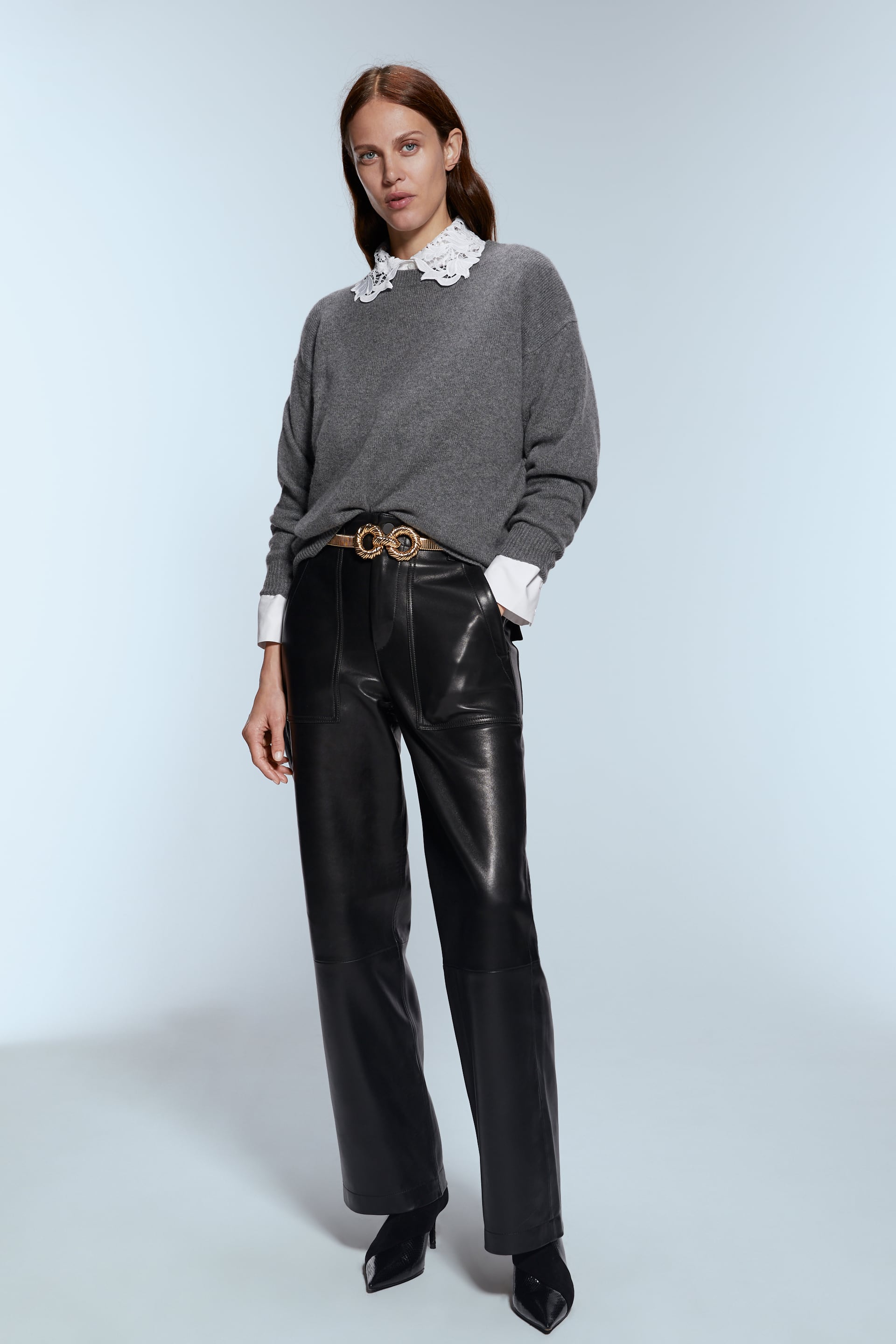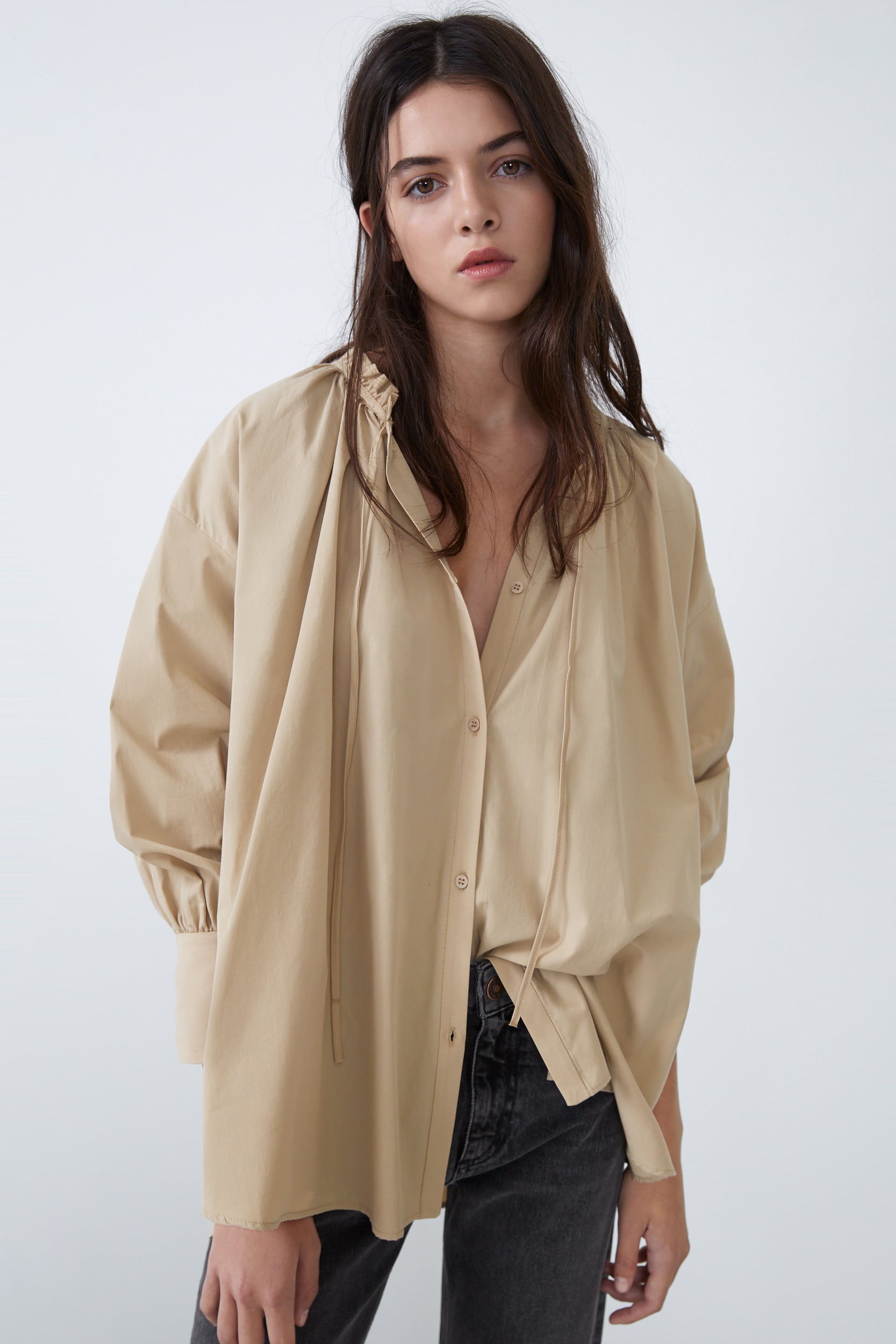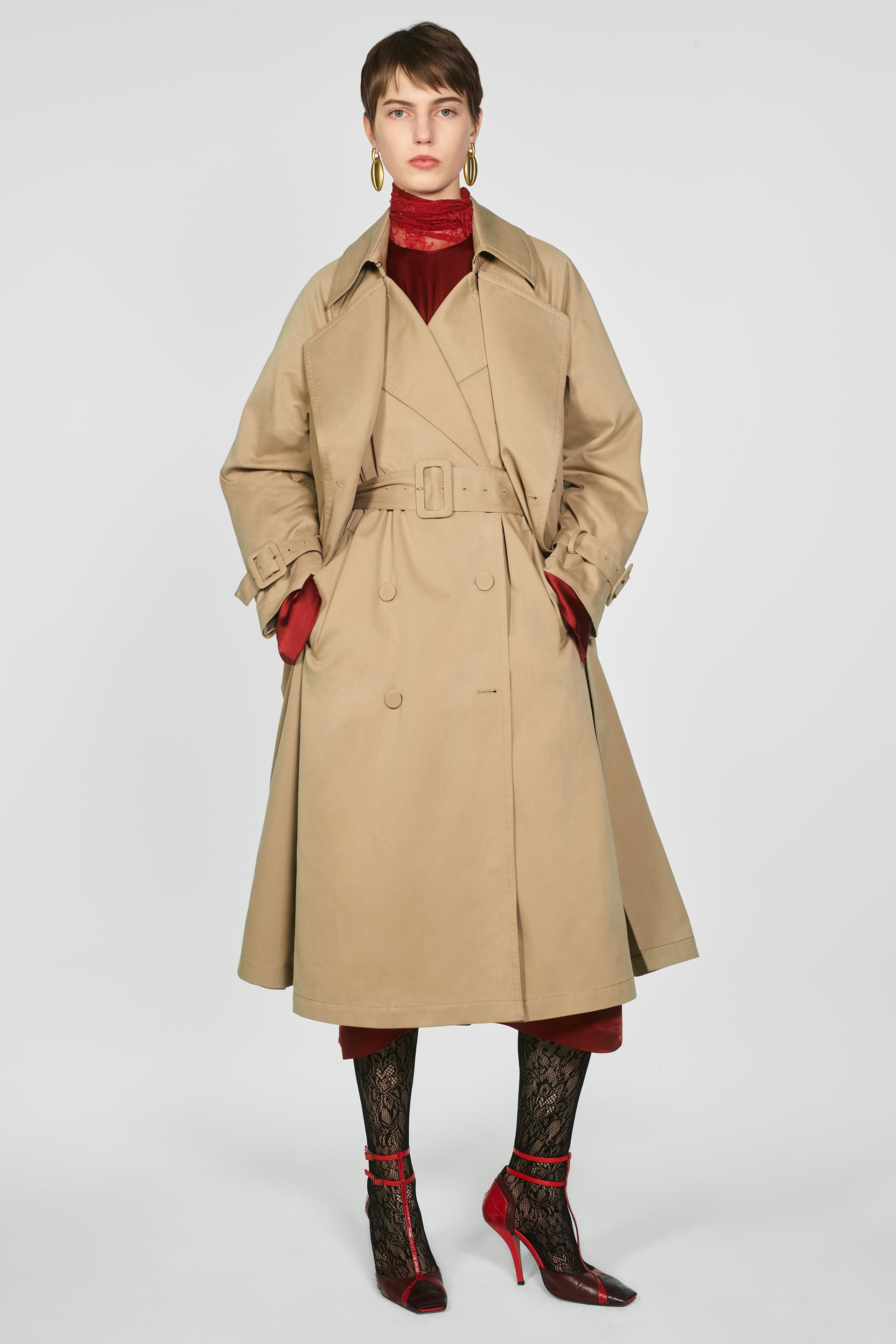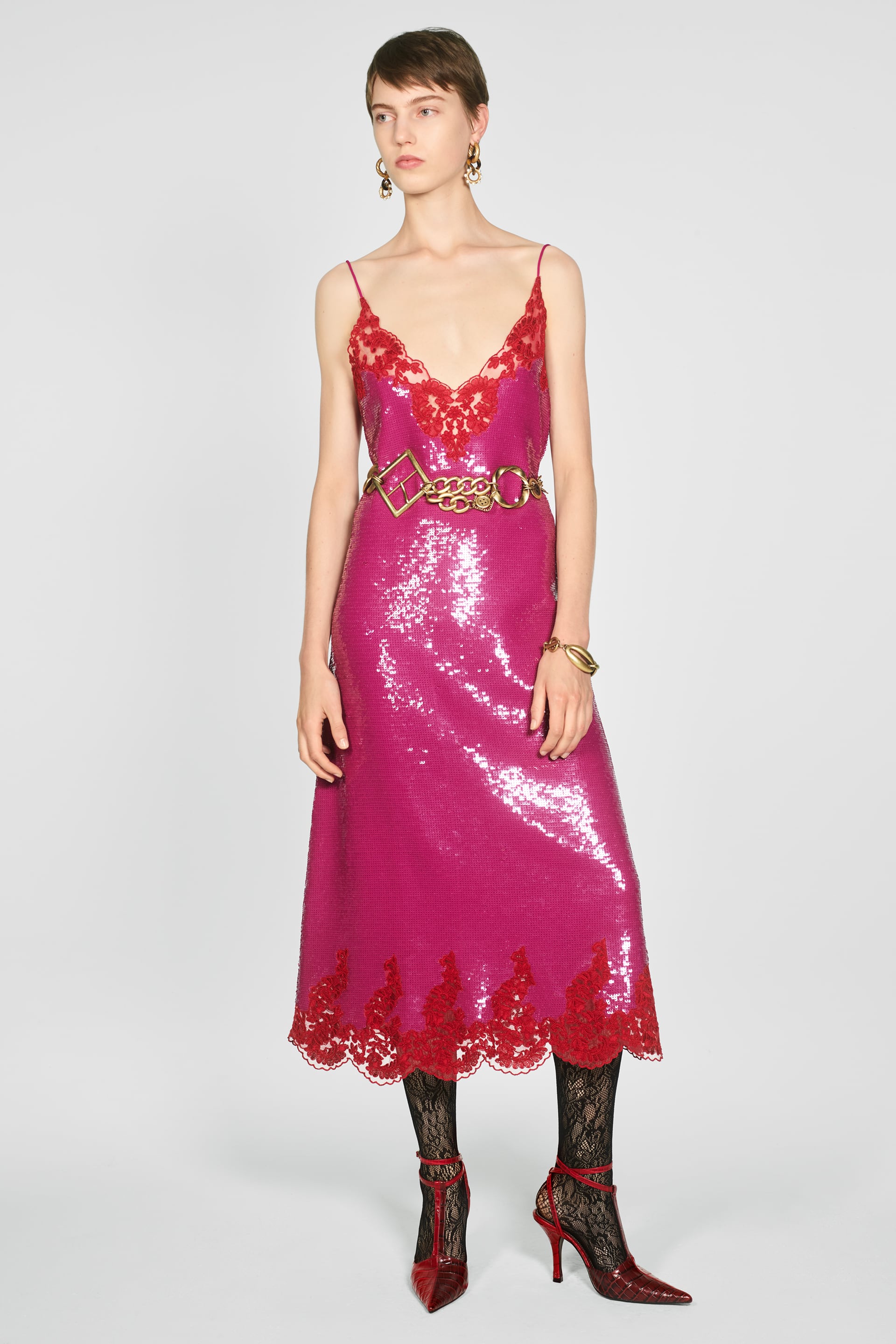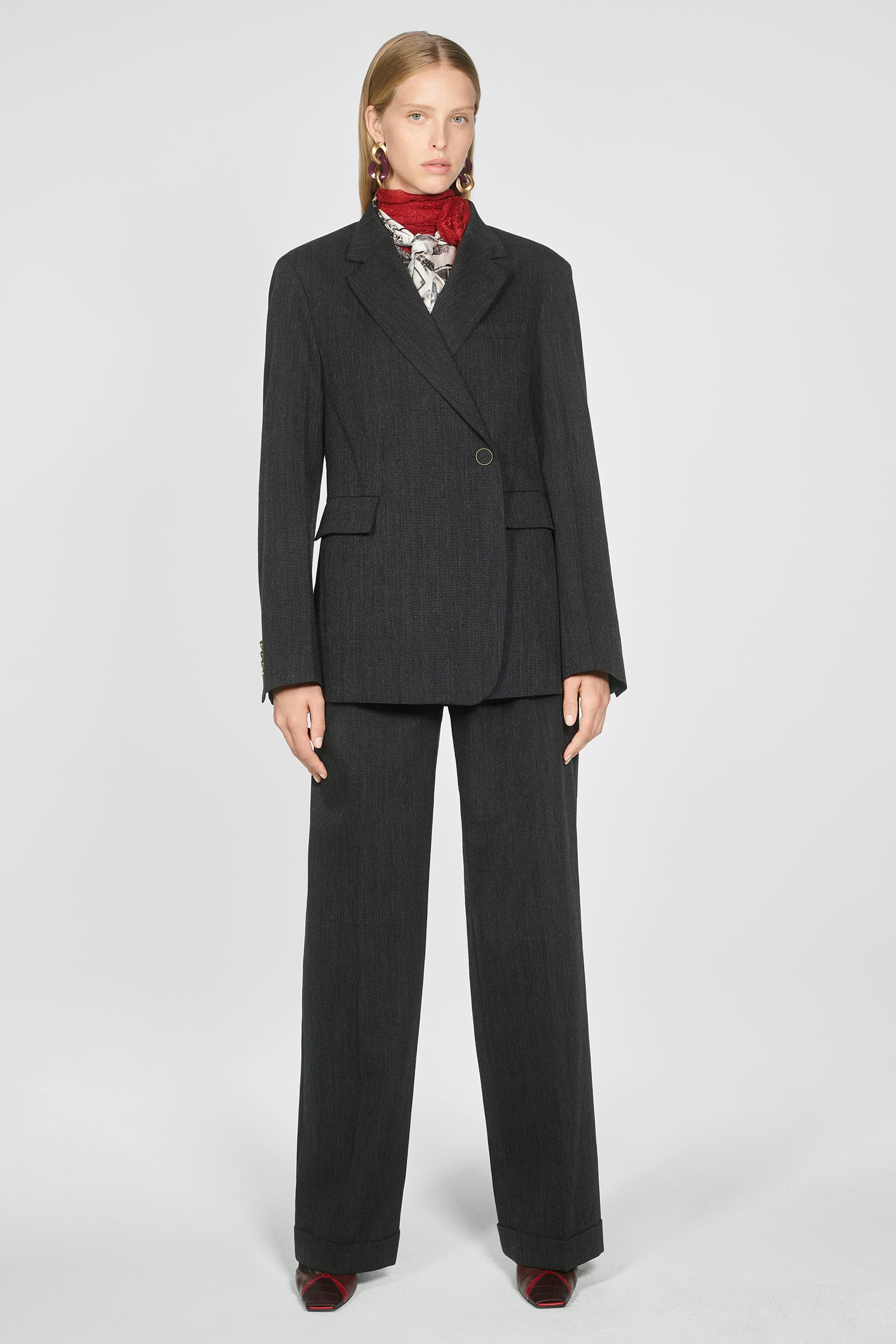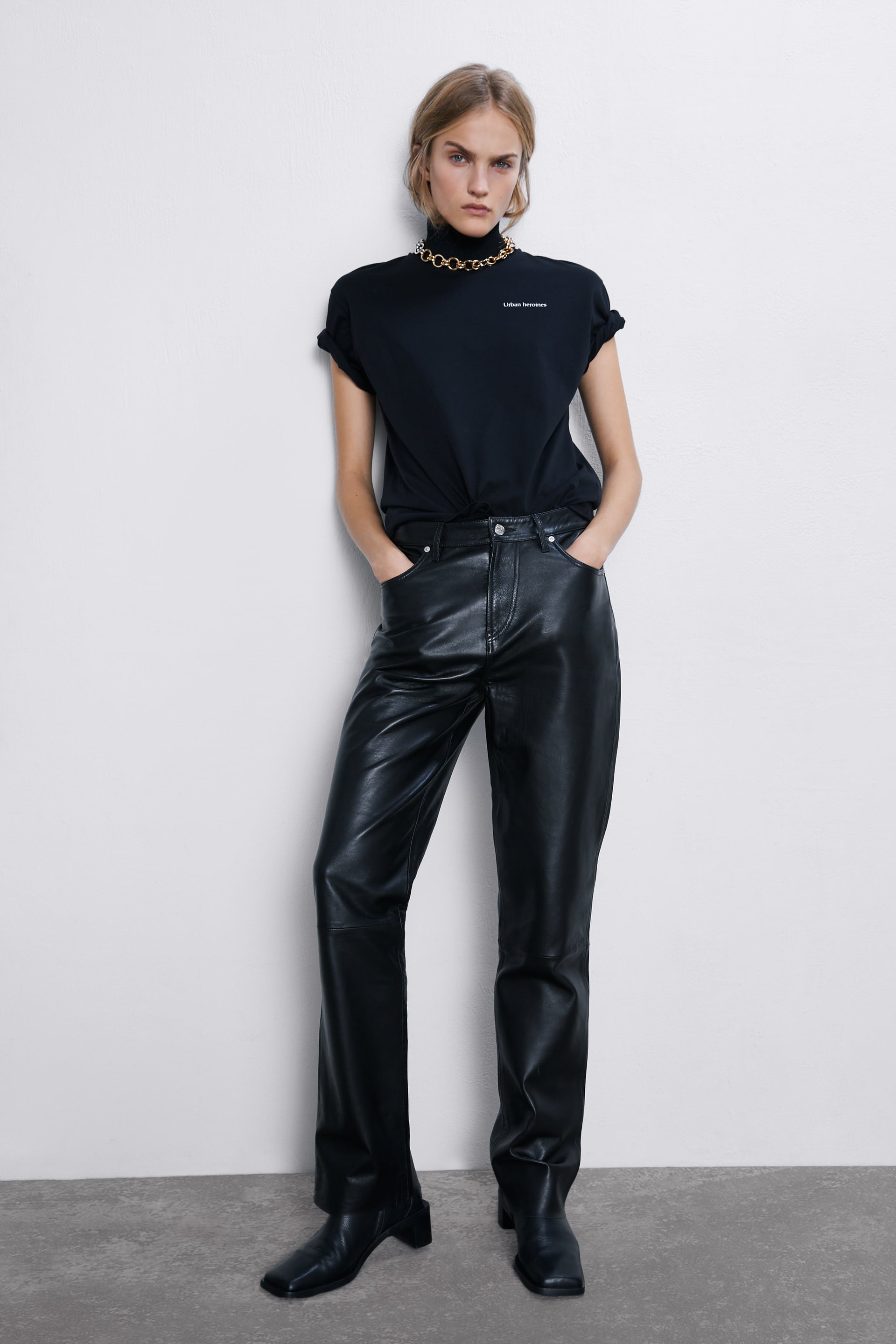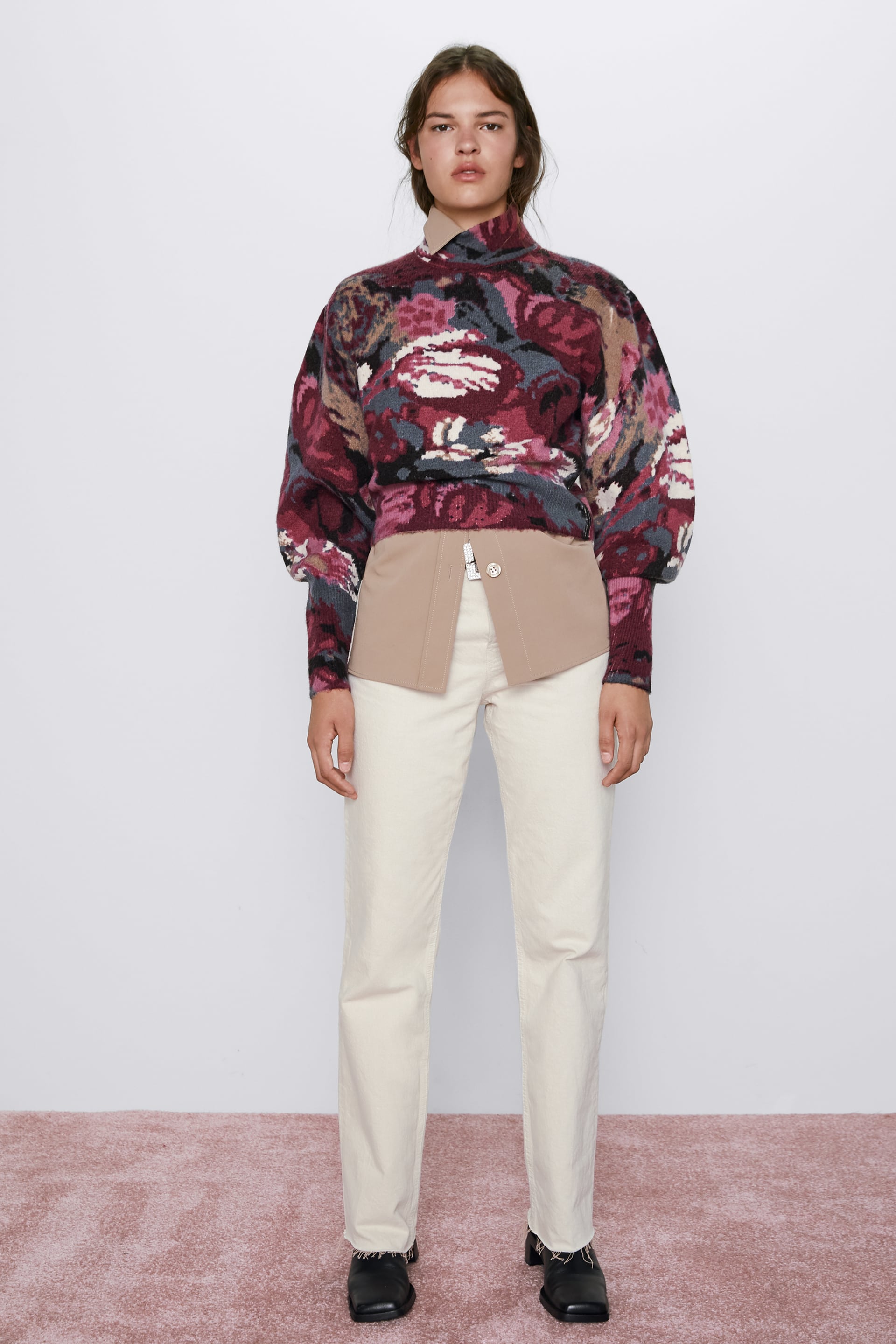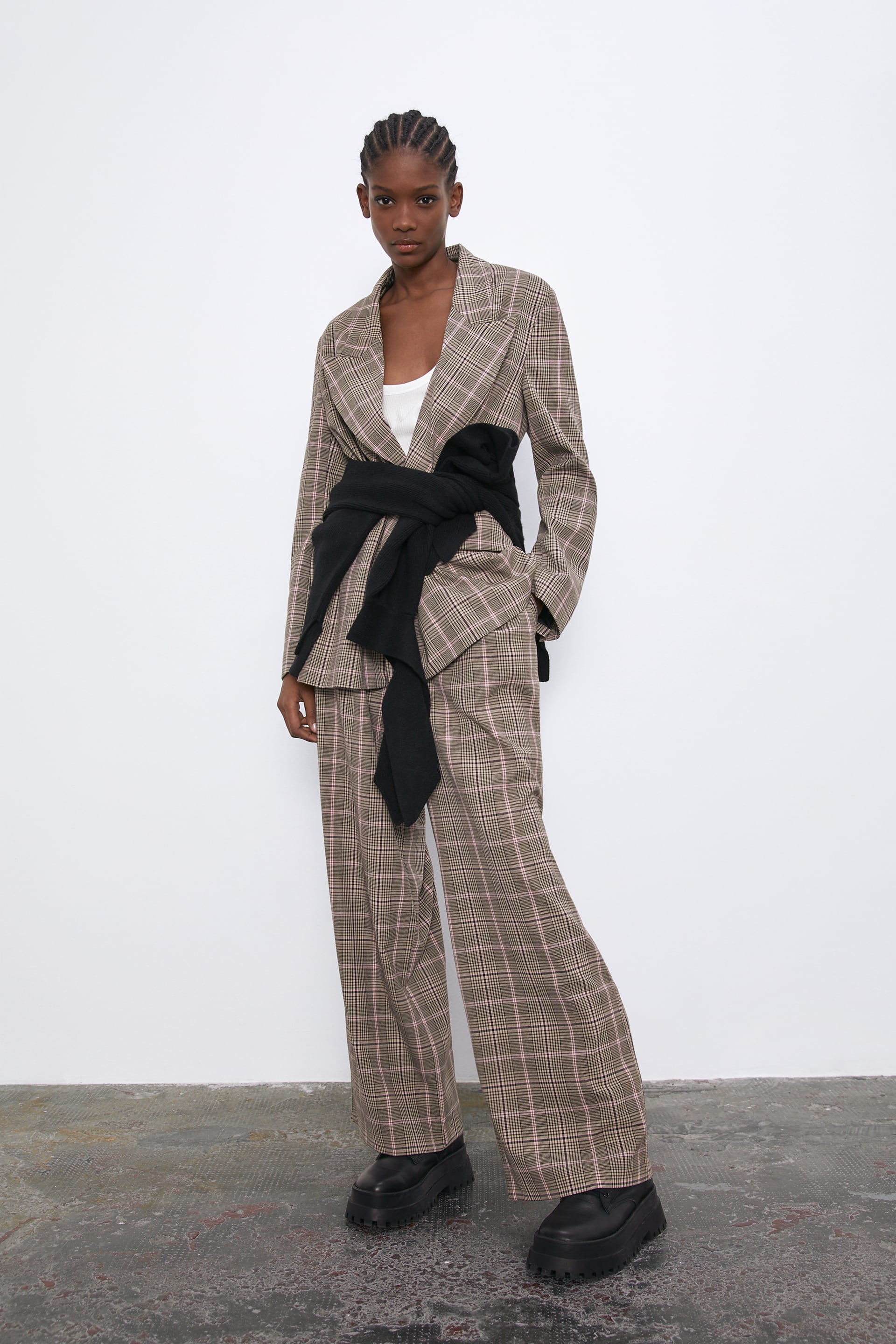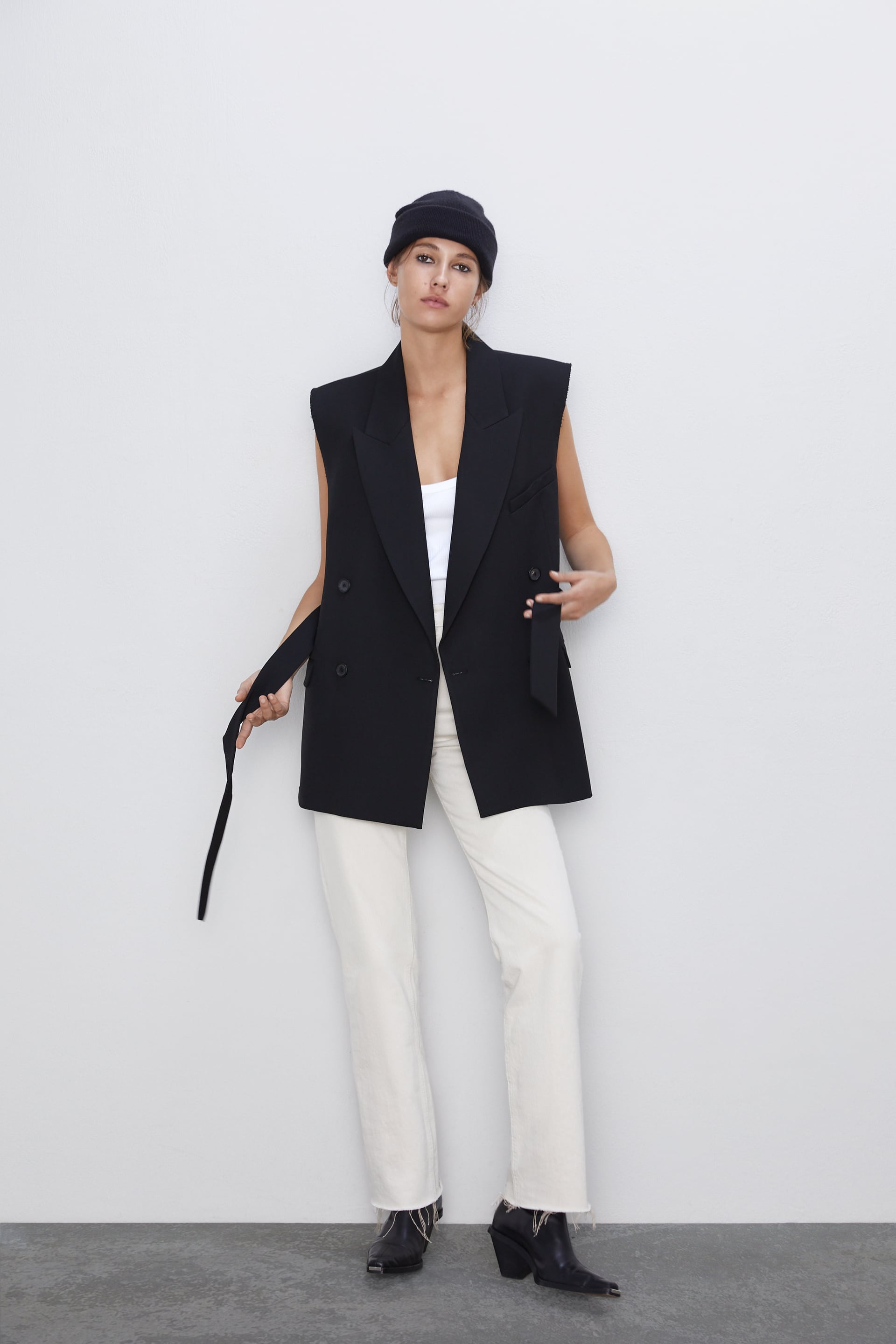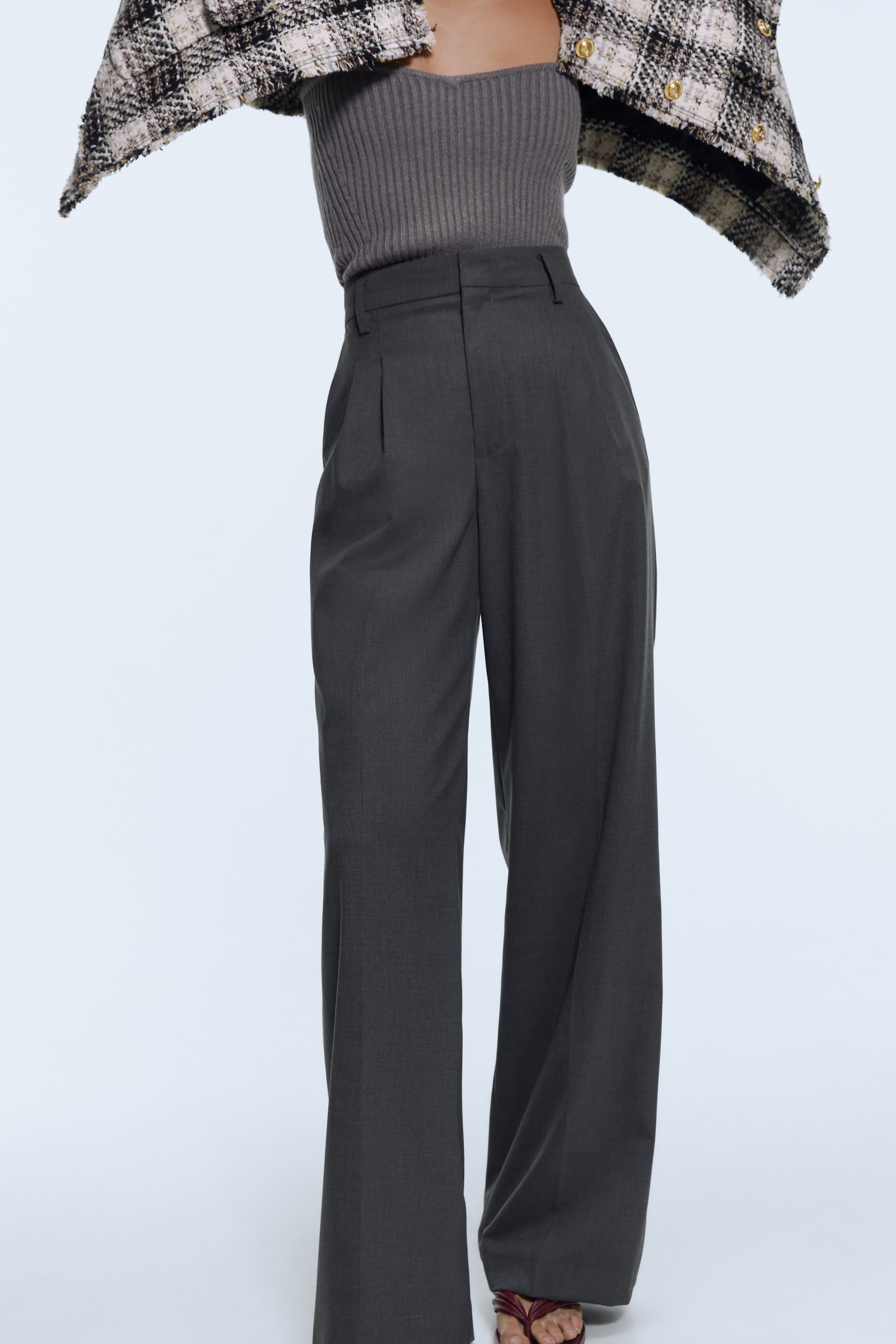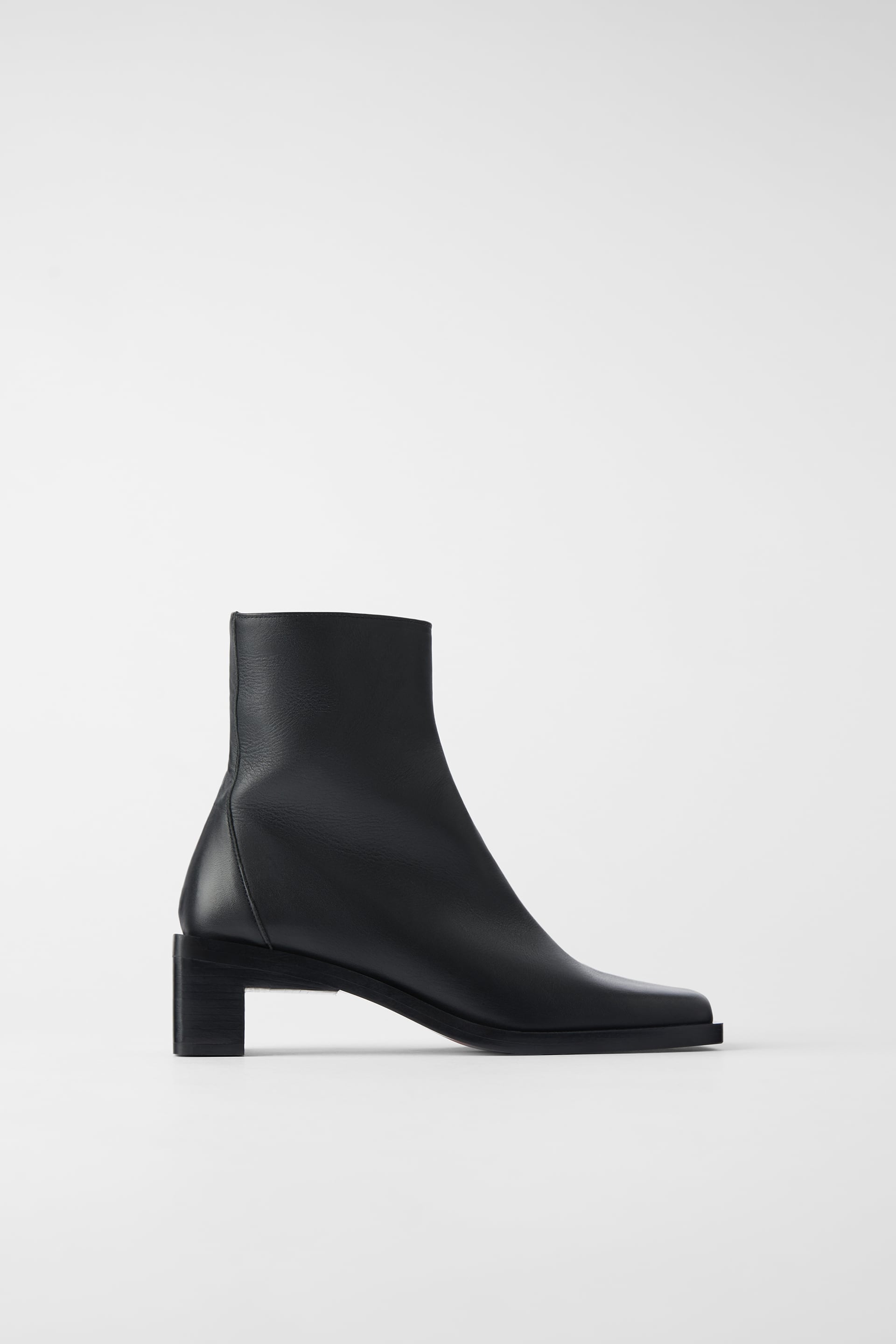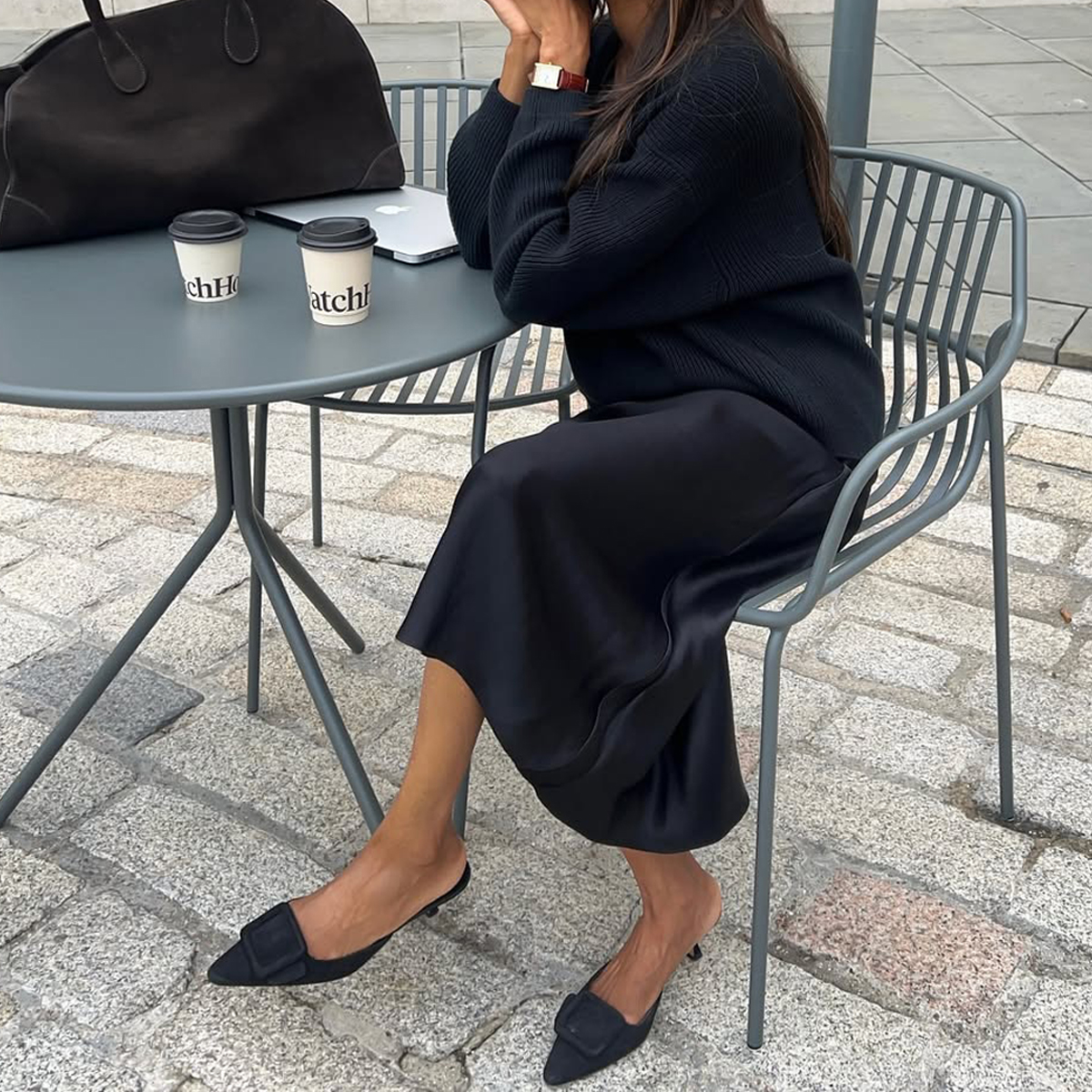All the Zara "Secrets" I Learned While Visiting the Brand's Headquarters
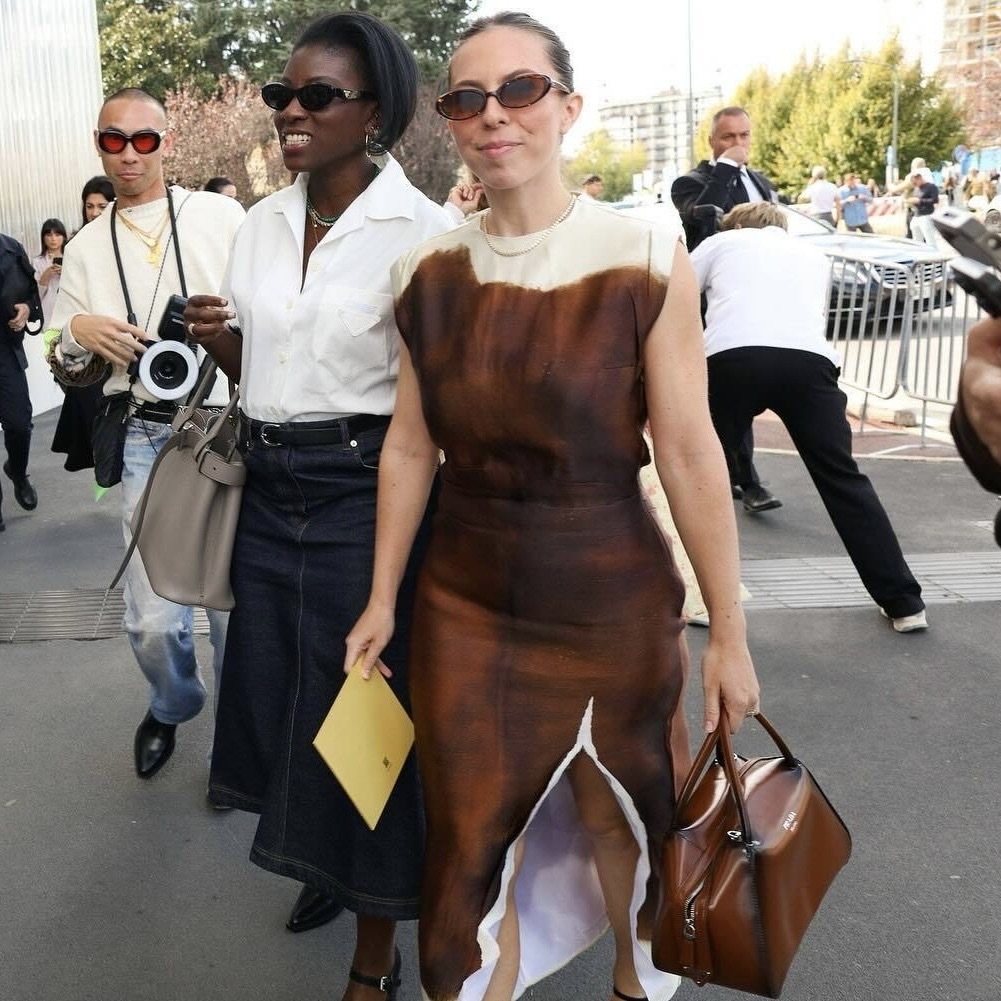
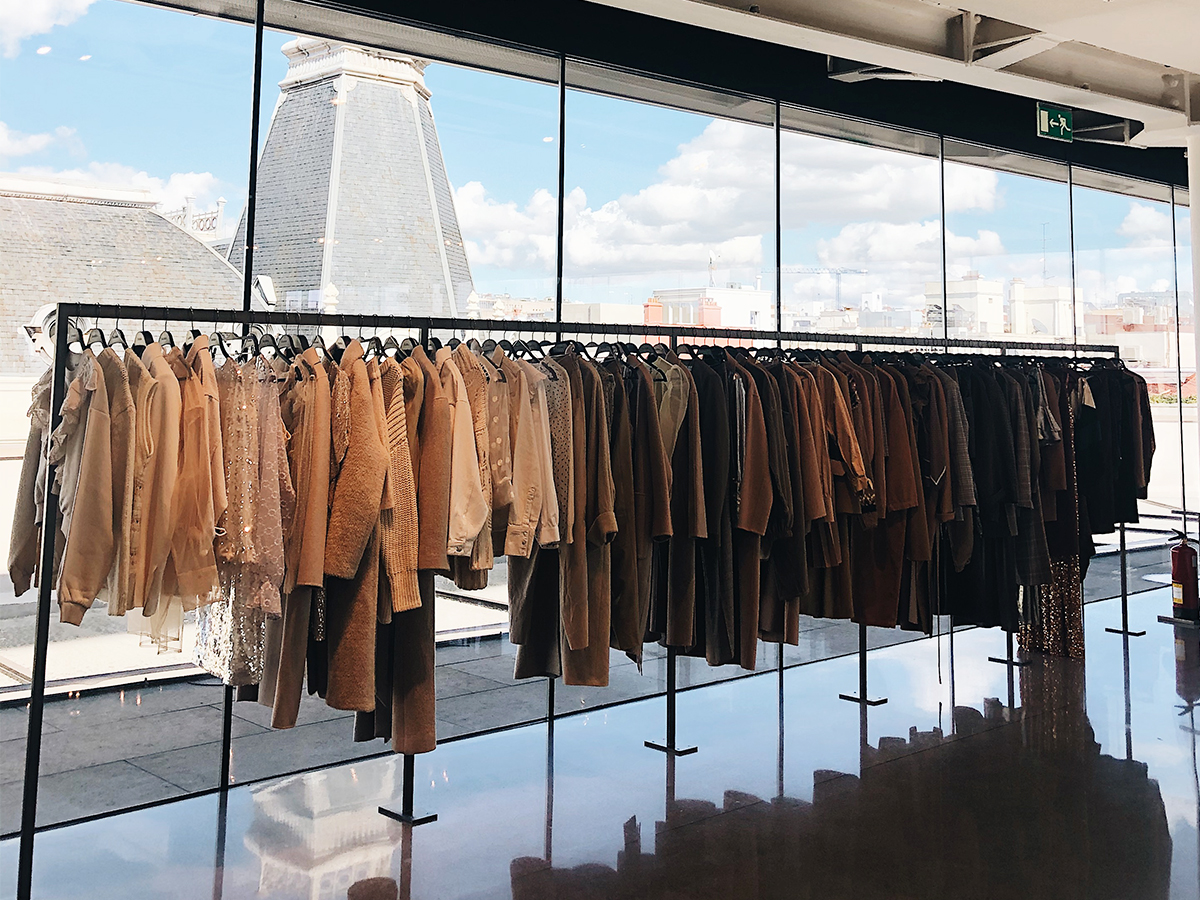
Zara—you see one at every major shopping destination, you shop it online probably too often, and you turn to it for way more of your fashion fixings than you would like to admit. But what do you really know about the brand? While I claim to be somewhat of an expert on the retailer, there were still so many unanswered questions that had been lingering in my mind for longer than I can remember. When it comes to Zara, there are unfortunately so many misconceptions surrounding the brand. Thanks to the company’s humble and quiet nature, it rarely makes a fuss trying to squash them. Instead, the brand keeps its head down, keeps working, and keeps producing the reliable and stylish product we all turn to it for. Zara’s relative silence (no paid advertising, no influencer partnerships, etc.) appropriately generates an air of mystery on all fronts, but for the first time ever, we were allowed the ultimate inside look.
I recently had the rare opportunity to visit Zara’s headquarters in A Coruña, Spain (where the very first Zara was founded in 1975) for what I would call the trip of a lifetime. As a true Zara obsessive, the chance to get a behind-the-scenes look at all the magic that goes into the worldwide Inditex empire was indescribable, but I’m going to do my best to relay all of the "secrets” I learned while in attendance. Ahead, you’ll read up on everything about Zara you’ve always wanted to know, including its sustainability practices, design processes, and much more.
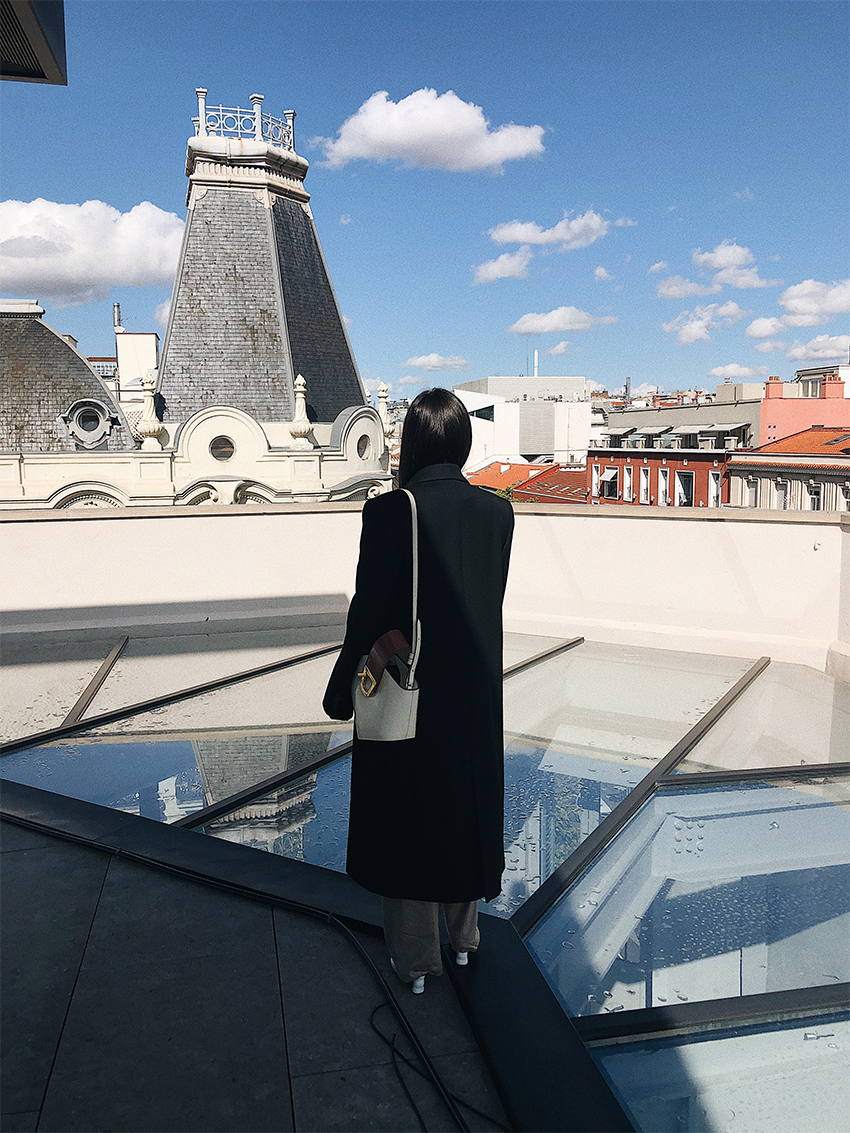
This is the view from the Zara showroom in Madrid, Spain.
Sustainability
One of the first things that was hammered into me during this trip was the fact that Zara does not consider itself a fast-fashion brand, and after seeing exactly how the company runs its operations, I will never label it as such in an article again. While, yes, Zara is churning out fashion quickly, that is certainly not just how society defines the term today. Today, claiming to be a "fast-fashion” retailer insinuates that there is essentially zero attention paid to sustainability—how could there be with a singular focus of producing garments at the speed of light? Well, that’s not Zara.
Did you know that in 2018, Inditex was named the most sustainable company in the retail industry for the third year in a row by the Dow Jones Sustainability Index (DJSI)? Fortune magazine also named Inditex the 4th Best International Company that Changes the World. Inditex is marching to the beat of its own drum, and we have the facts to prove it.
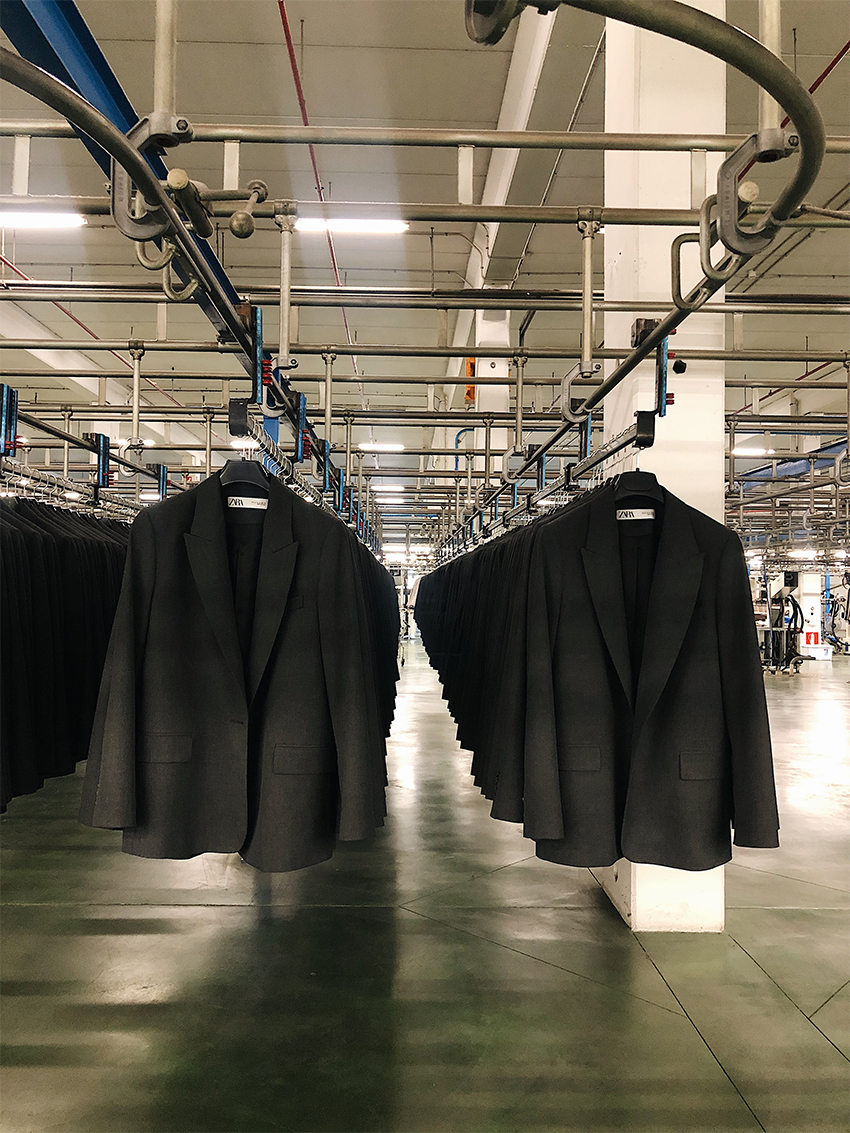
Blazers prepped and ready in the distribution center to be sent out to Zara stores worldwide.
Every day, Zara works to better its use of raw materials as it increases its use of sustainable cotton, forest-friendly alternatives, and recycled fibers and recycled polyester—but that’s just scratching the surface. As the company told us, "100% of the energy consumed by our logistic centers in Spain comes from renewable resources. In addition, the use of electricity from renewable sources in all the company’s facilities has multiplied by almost 20 since 2014.” Additionally, Zara has committed that 80% of the energy consumed in all of its distribution centers, offices, and stores will be clean by 2025.
Sustainability talks can clearly go deep, but consumers are impacted the most by what is right in front of them—packaging and in-store initiatives. In regards to packaging, Zara’s distribution centers will re-use their cardboard boxes up to six times before recycling them and turning them into the boxes you ultimately receive in the store or via online delivery. Eliminating plastics fully is challenging for any company, but Zara is working toward single-use-plastic-free retailing.
As of now, Inditex has removed all plastic bags from the stores Zara, Zara Home, Massimo Dutti, and Uterqüe, and by 2020 that list will include the rest of the Inditex family. Speaking of inside the stores, Zara has implemented a garment collection program so that customers can turn in used clothing to be repurposed and recycled. These donations go to NGOs such as the Red Cross, Caritas, Oxfam, or the Salvation Army.
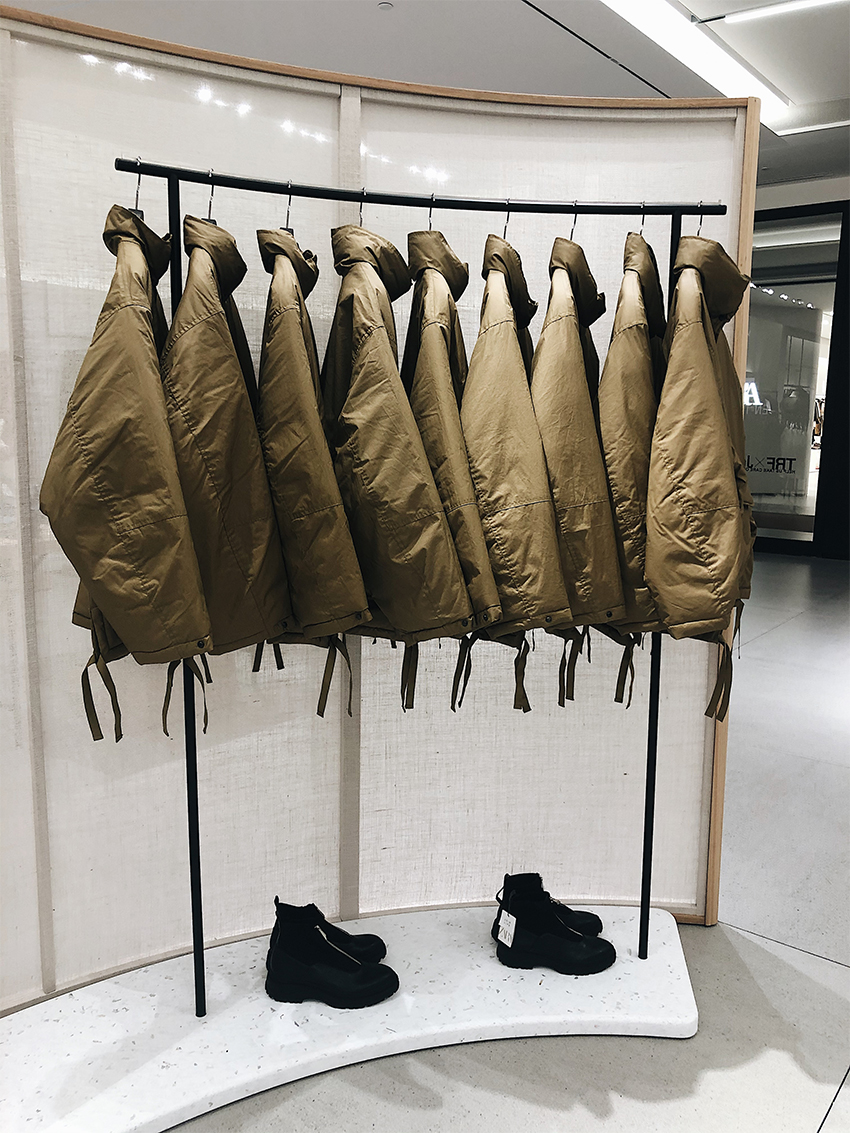
A sampling of what the Join Life section would look like in a Zara store.
Since no brand can do everything on its own, and Zara is very aware of that, Inditex is currently working with the Massachusetts Institute of Technology (MIT) to further research global sustainability challenges and solve them.
I think it’s safe to say Zara is doing what it can to not only be more mindful as a company but to also push boundaries within that space. In the meantime, you can shop Zara's Join Life collections made of recycled and sustainable materials (but you would never know it).
Shop Join Life:
Design
Here is where things get really good (as if they weren’t already). The Zara design team is a well-oiled machine filled with around 300 total designers. These designers are broken up into teams, one per section of the site. The designers are extremely well-rounded, as they not only work to create and innovate but to also meet customer demand.
As one of the womenswear designers told us, "We are product obsessed. We want to see what worked yesterday, what didn’t work so much so that the buyers can be as accurate as possible in placing their buys for the future. Each team is divided into sub-families—tailoring, dresses—and then each sub-family works super closely with its buyers to pinpoint what’s working and move with that and respond to that to be super on-demand and as accurate as possible.”
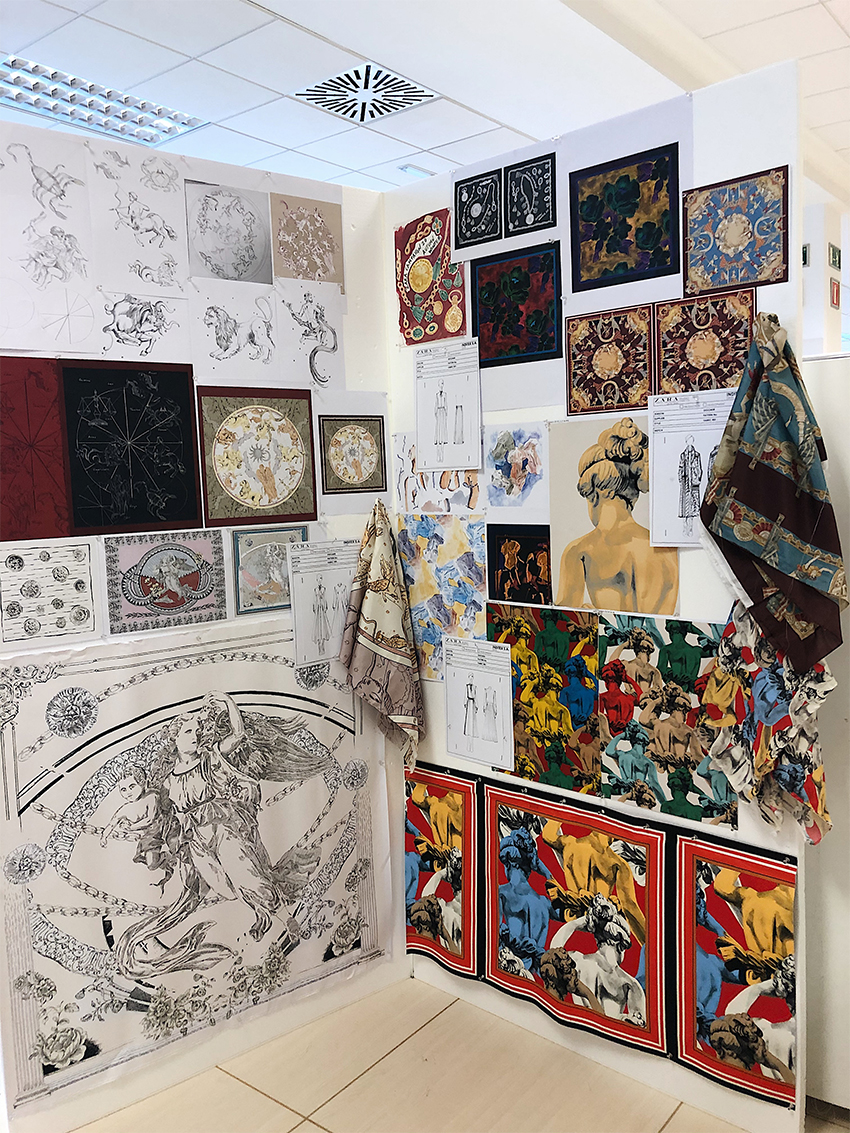
The mood board for the latest Campaign Collection.
It is no secret that everyone turns to Zara for the latest trends, but there is much more that goes into the design process that you would never know unless you met the designers. When starting a collection, designers are inspired by, yes, the runways in part, but lots of other avenues as well. "We’re often inspired from all over the place—a lot of us love contemporary art, architecture, sculpture, Instagram, street style, and of course important moments in costume history,” said one of the designers. "We are of course no strangers to Vogue and what people are wearing on the streets and on Instagram, but I have to say, it depends designer to designer. Personally, I come from a more visceral place. Also vintage is amazing,” he continued.
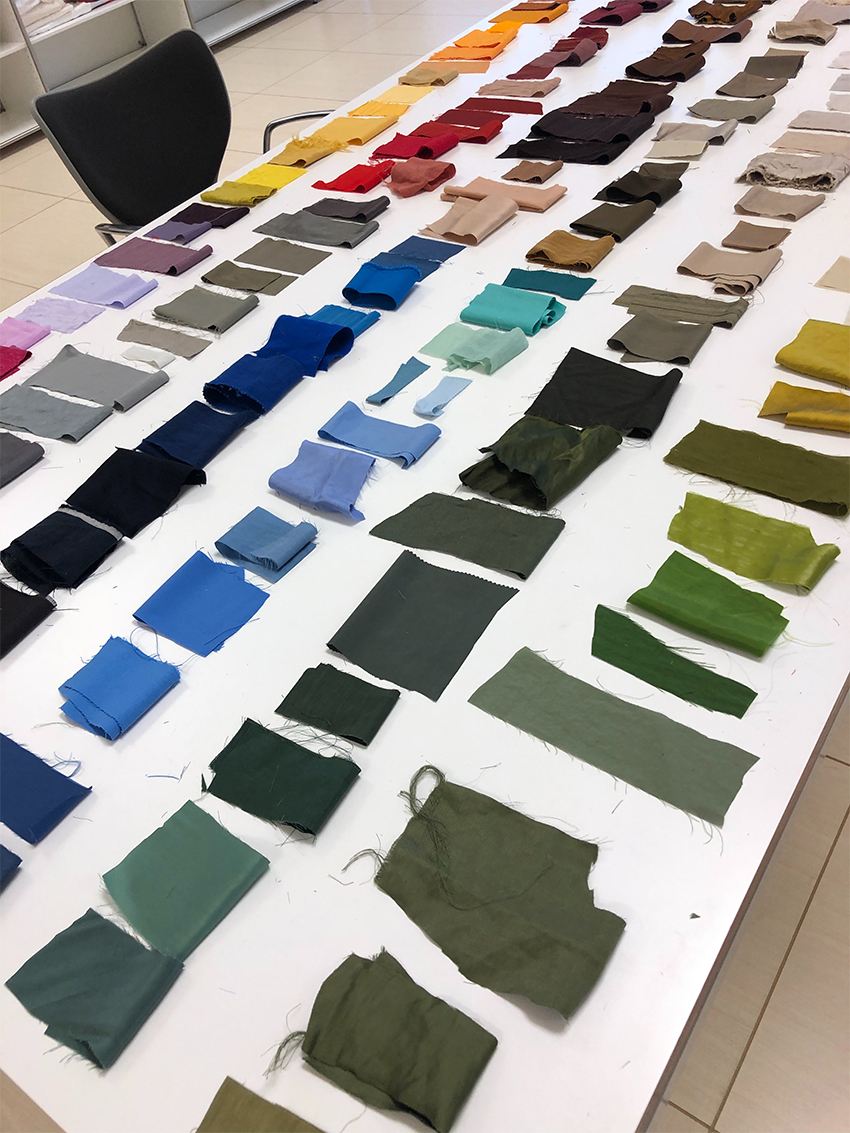
Fabric swatches the design team is currently eyeing for upcoming collections.
Once ideation is settled, the designers move onto fabrication and begin building the bones for each garment. "We work with suppliers from all around the world, and we’re always looking for the best product. For instance, for summer we were looking at Tencels and things that are super fluid and super light and things that really just get better with time. We also do have the great fortune to be able to have a lot of recycled things, and they really respond to our demand because the client is our muse and she is our number one, and that’s really what she’s responding to right now so it’s super important,” he continued. From there, designers march their designs downstairs (trust me, I witnessed this) to the patternmakers—an assortment of people who have decades of experience working in the rag business who are able to turn the designers’ dreams into a reality.
As the designers stated above, the customer is the number one muse, and they work tirelessly to make sure their demand is met, but one thing Zara will never do is produce or design the same garment twice. Once a product sells out, it will never get remade, at least not in the same exact way. If something is selling better in one store or region than another, they will move product to accommodate that demand, but will never remake the same design. I don’t know about you, but this fun fact was the shock of the century. Basically what this means for you is that if you see a Zara item you like, buy it immediately because it’s never coming back, at least not without a few tweaks here and there.
Shop the new Campaign Collection we saw a sneak peak of while on the trip:
Styling
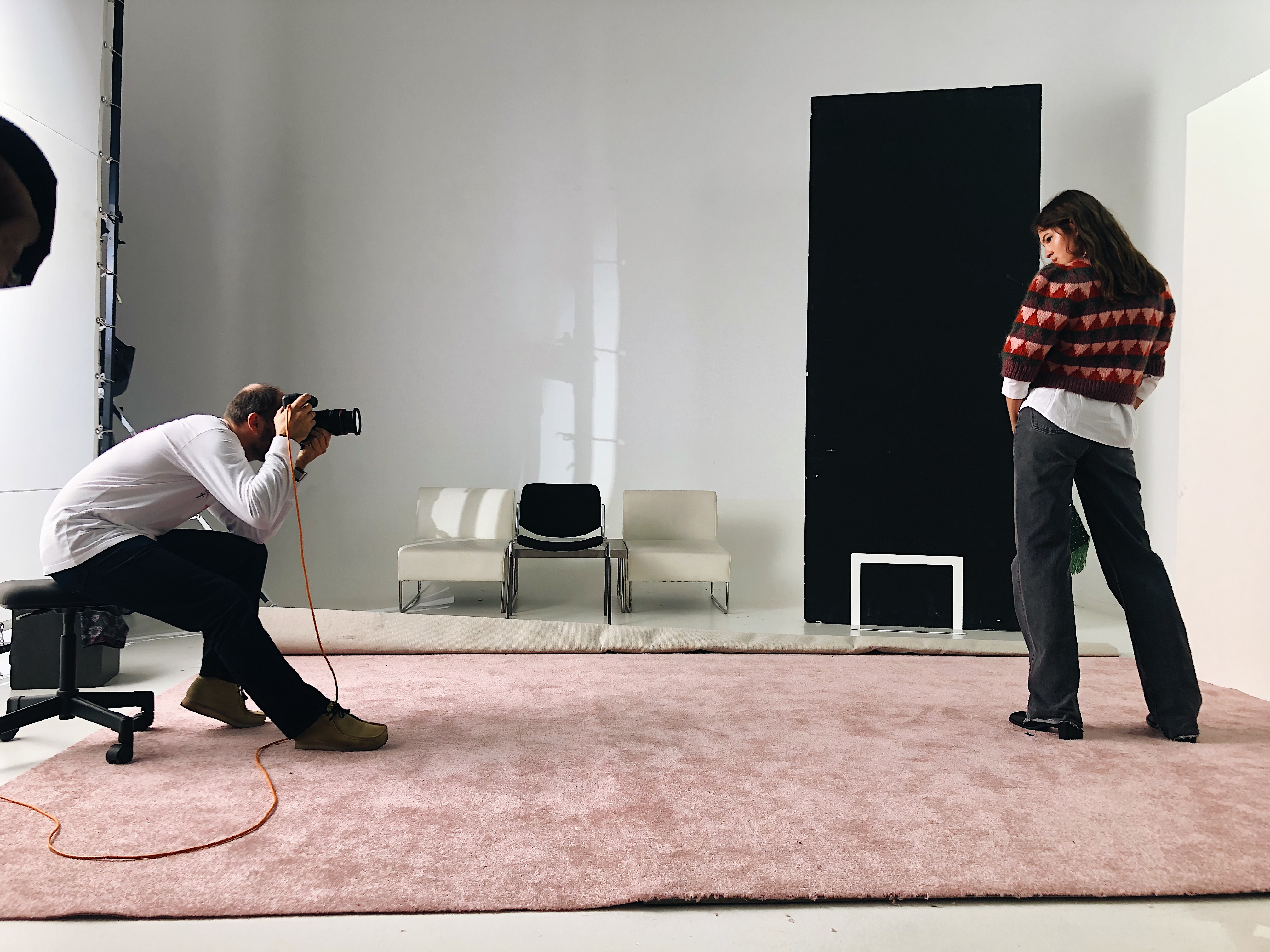
An e-commerce shoot in action in one of the HQ's many photo studios.
Ever wonder why you can never buy just one item at Zara at a time? It’s because the stylists behind every look make it impossible. While in A Coruña, I got the opportunity to witness an e-commerce shoot in action, meet the head of the styling department, and ask all the questions I had been losing sleep over for years. Zara releases new products about twice a week, meaning the photo studios are seriously hustling to create the forward images you see on the site.

Product set up by one of the stylists in a photo studio. It felt like everyone at the Zara HQ had the same aesthetic as this rack.
Within the headquarters, there are 15 studio sets where all the magic happens. Each studio is accompanied by its own team (photographer, stylist, etc.). There are about 20 looks shot per day and those are the looks you see uploaded to the website and on display in the store twice per week. Since there are many different stylists working to create innovative looks with the new product, none of the styling is the same. So the next time you’re browsing the website, try to see if you can guess which stylists worked on which looks.
See new styling techniques we love:
"HQ Style"
Before you go, I want to leave you with the overall taste that was left in my mouth after visiting Zara's Headquarters. After touring multiple distribution centers, walking through the offices, studios, and even the cafeteria of Inditex, I was actually quite surprised that despite how massive of a company it is (and how sci-fi the aesthetic is), Inditex felt like one big family-run operation. There are no offices, just open-concept seating that even the founder, Mr. Ortega, sets up shop at every day; all the teams actually work together, everyone smiles and says hello to one another as they walk down the halls, and even the employees in the distribution centers are treated with the utmost respect, as it should be.
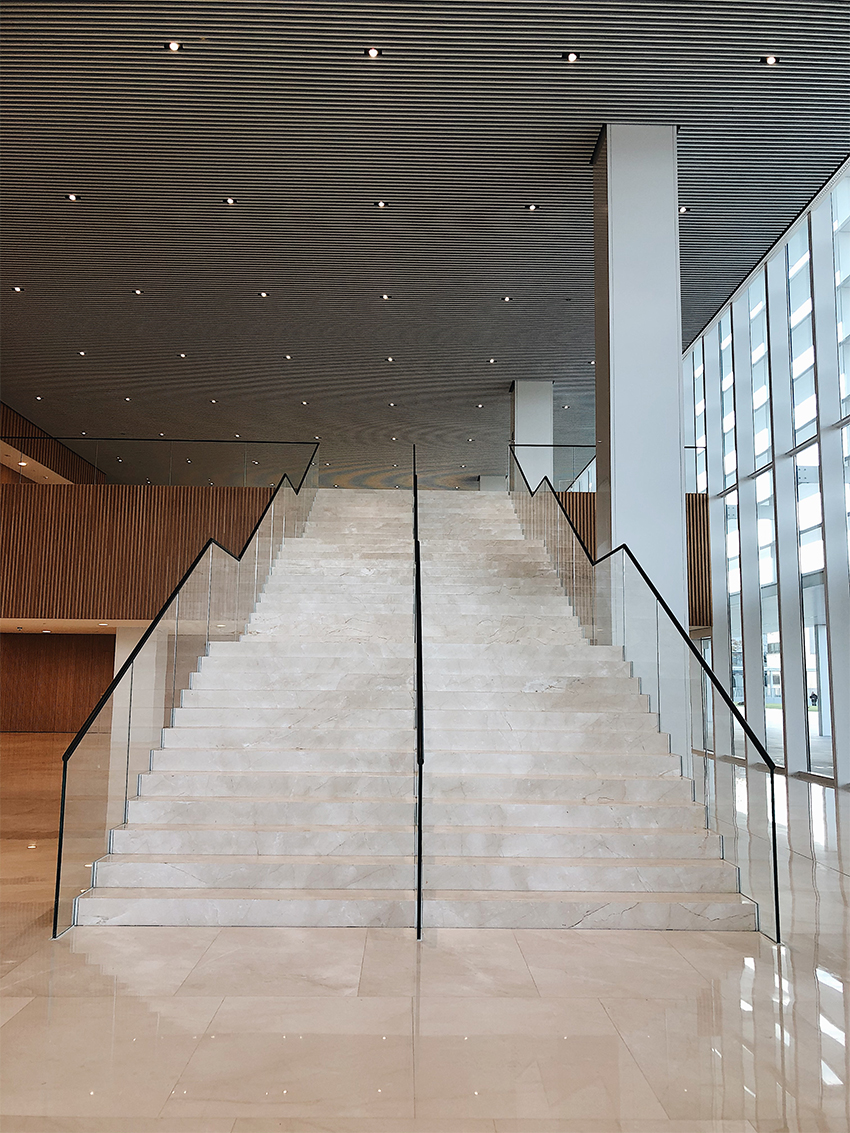
Inside one of the buildings at the Inditex Headquarters in A Coruña, Spain.
This kind of positive morale is proof that Zara cares. If all the information about its sustainability plans and design processes didn't convince you, hopefully, the way the brand treats its employees does.
Beyond that, in case you were wondering, yes, everyone that works at the HQ has what was described to me as "HQ style"—totally chic, impeccably styled, and always in the freshest new Zara. It's safe to say I left this trip with a Zara shopping cart filled to the brim and a newfound appreciation for the brand I didn't know I could love any more than I already did.
Shop HQ Style:
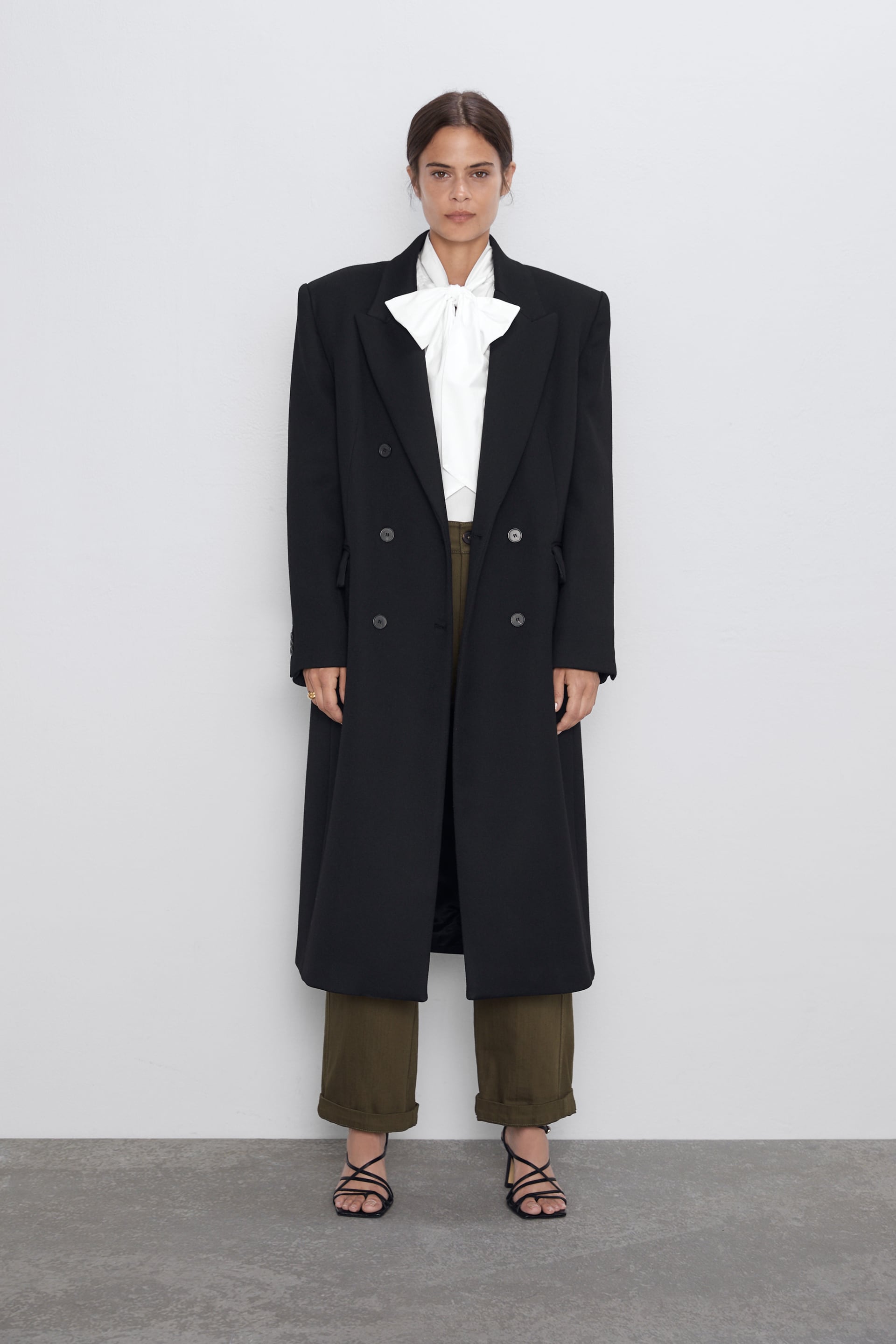
Next up, shop Zara's latest Campaign Collection and read up on what inspired the designers to take the direction they did.
This press trip was paid for by Zara. Editor's opinions are her own.

Lauren Eggertsen is currently the editorial director of Who What Wear and has worked at the company for over nine years, where she started as an associate editor and has since worked her way up. Lauren has worked in the Los Angeles and New York Who What Wear offices but currently calls L.A. home. Here, she leads and manages Who What Wear's editorial team and oversees all editorial content. Lauren's role also includes helping to set the fashion direction for all original photo shoots and often styles many celebrity cover shoots, including big names like Kaia Gerber, Normani, and Sabrina Carpenter. She has also attended multiple fashion weeks, including New York, London, Milan, and Paris, where her style has been featured on sites such as Vogue, Harpers Bazaar, and Elle.
-
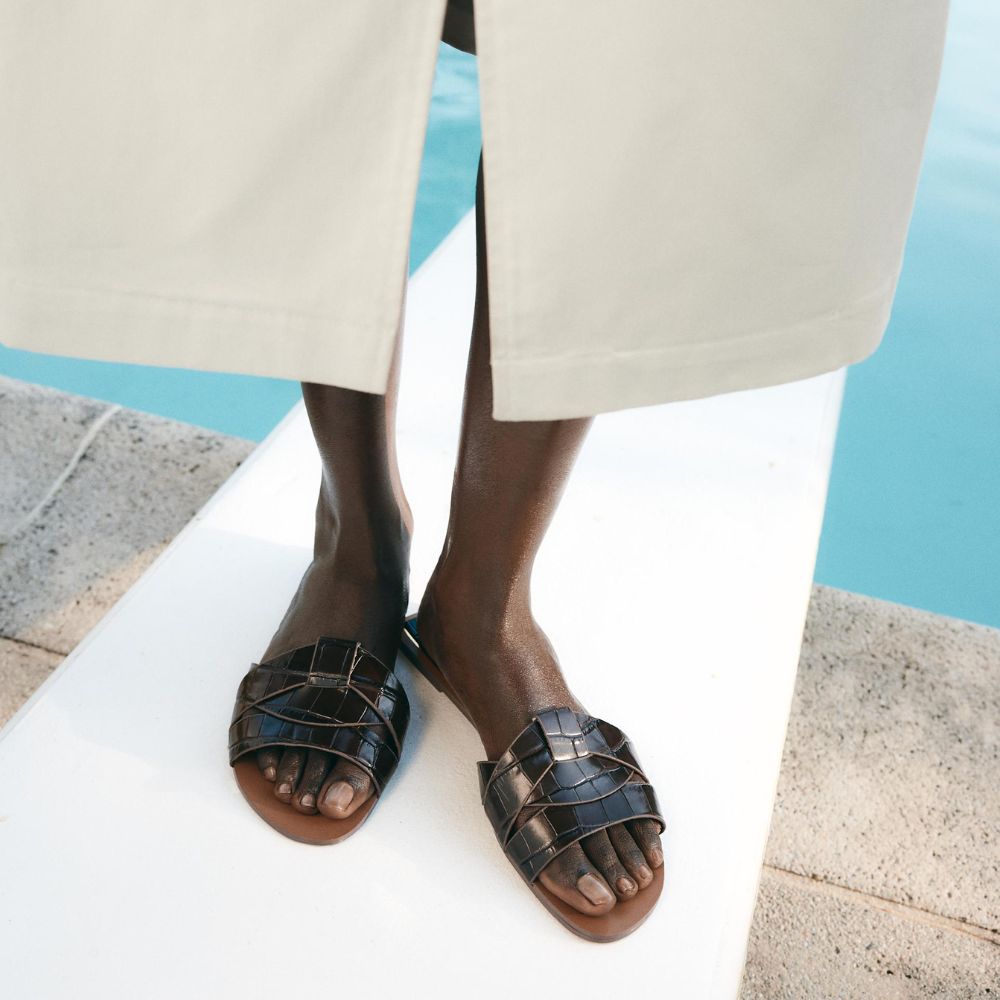 Zara Doesn’t Do Mediocre Sandals—I Know These Stylish Pairs Will Be Gone By May
Zara Doesn’t Do Mediocre Sandals—I Know These Stylish Pairs Will Be Gone By MayI can't see these staying in stock for long.
By Natalie Munro
-
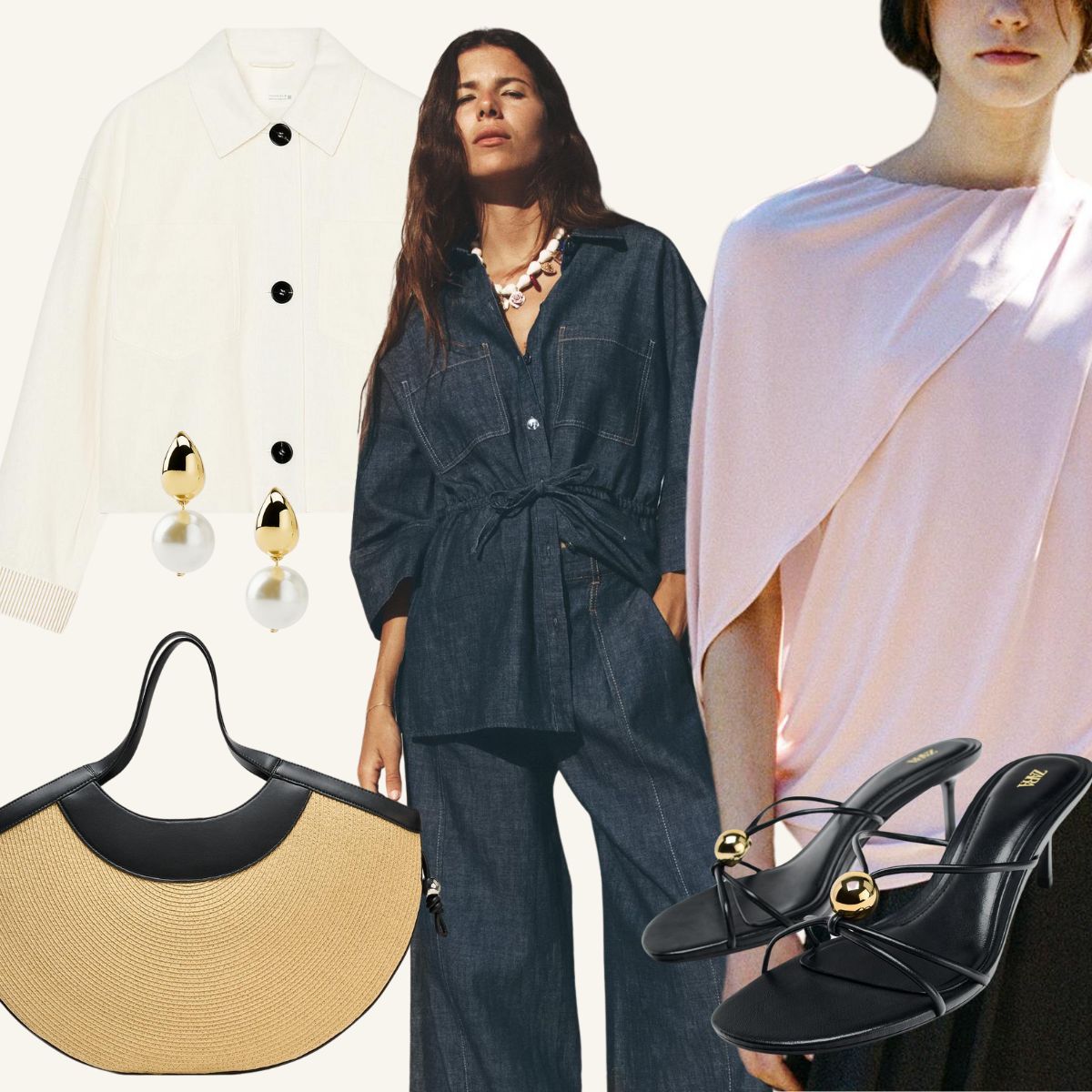 Zara's Spring Collection Stopped Me in My Tracks—9 New-In Buys That Will Sell Out Next
Zara's Spring Collection Stopped Me in My Tracks—9 New-In Buys That Will Sell Out NextSpring dressing just got chicer.
By Florrie Alexander
-
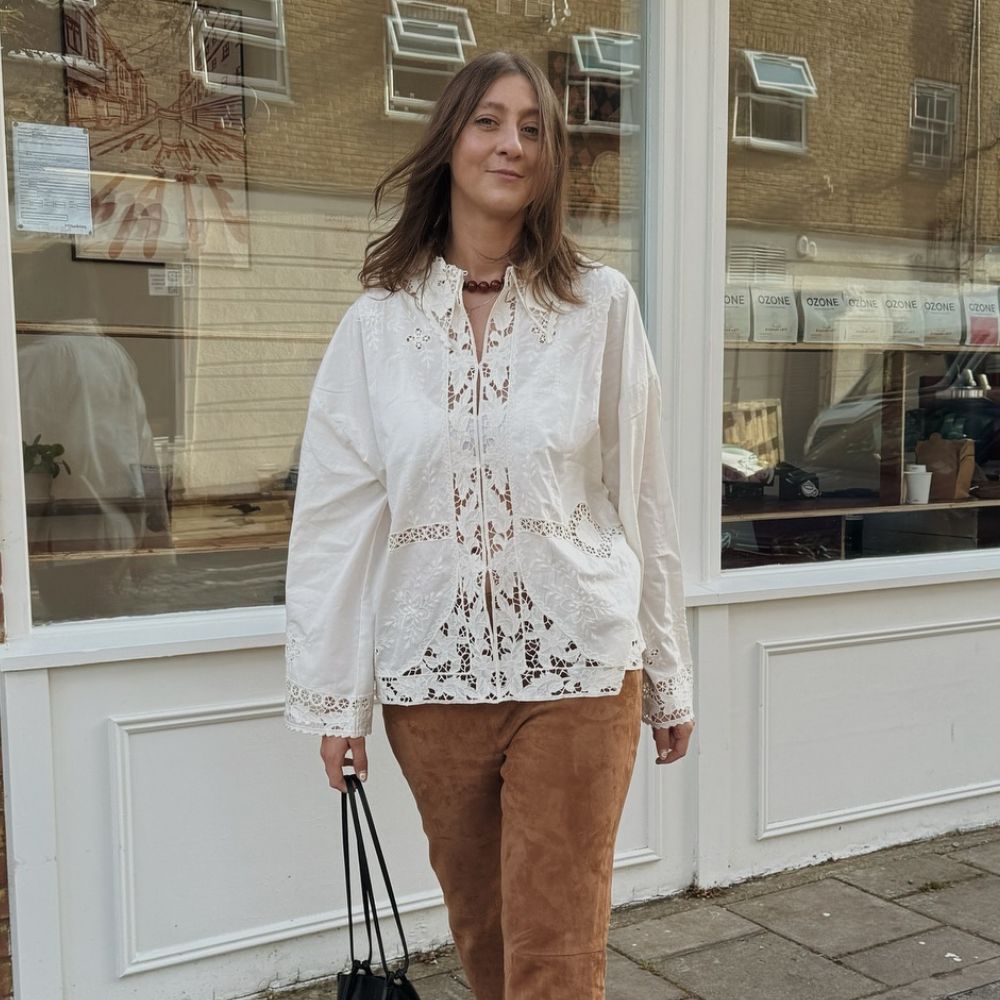 I Have a Strong Hunch These 17 Expensive-Looking Zara Blouses Will Sell Out by May
I Have a Strong Hunch These 17 Expensive-Looking Zara Blouses Will Sell Out by MayBe warned.
By Natalie Munro
-
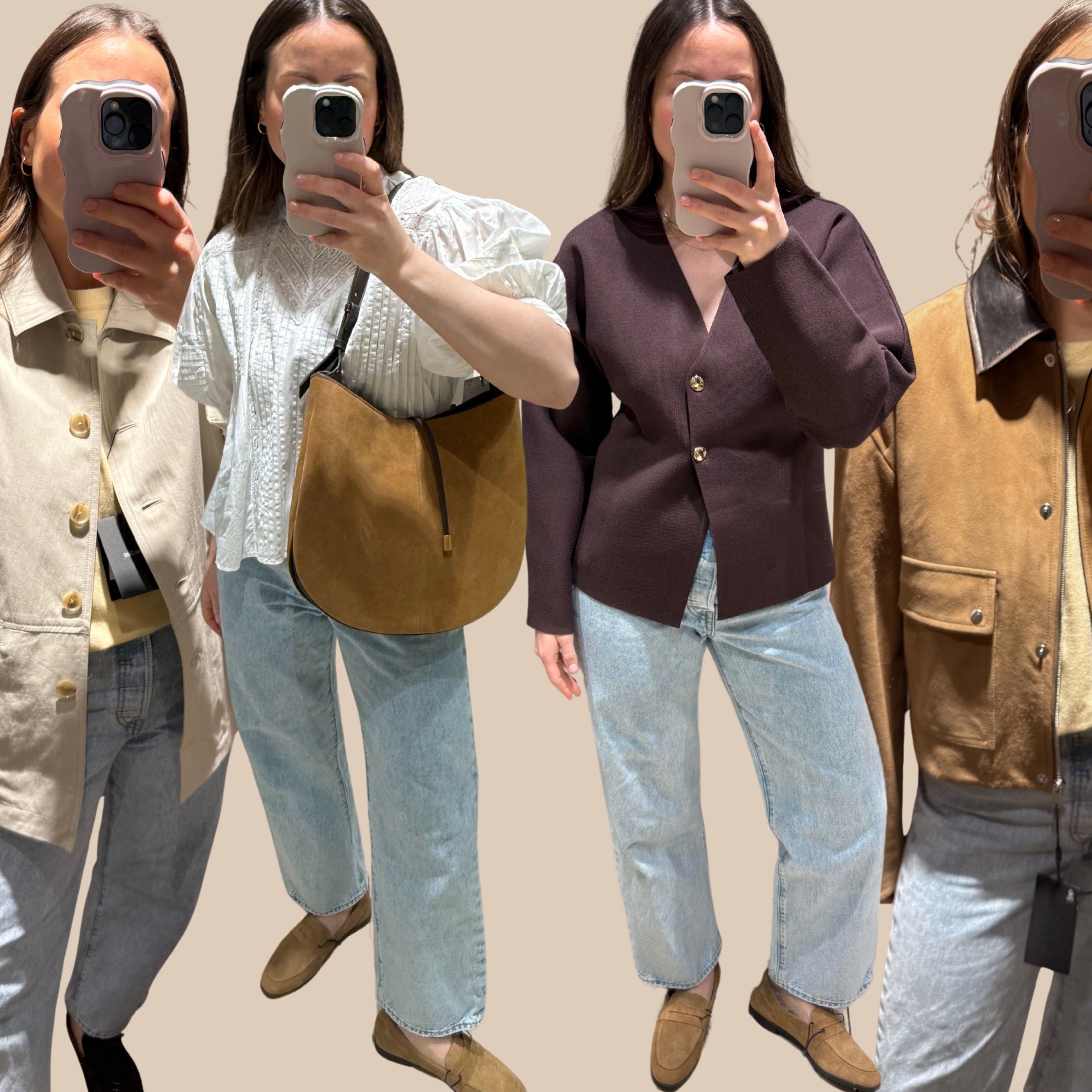 I Just Popped Into Zara and Massimo Dutti and Found So Many Incredibly Chic Buys for Spring
I Just Popped Into Zara and Massimo Dutti and Found So Many Incredibly Chic Buys for SpringI was so impressed.
By Emily Dawes
-
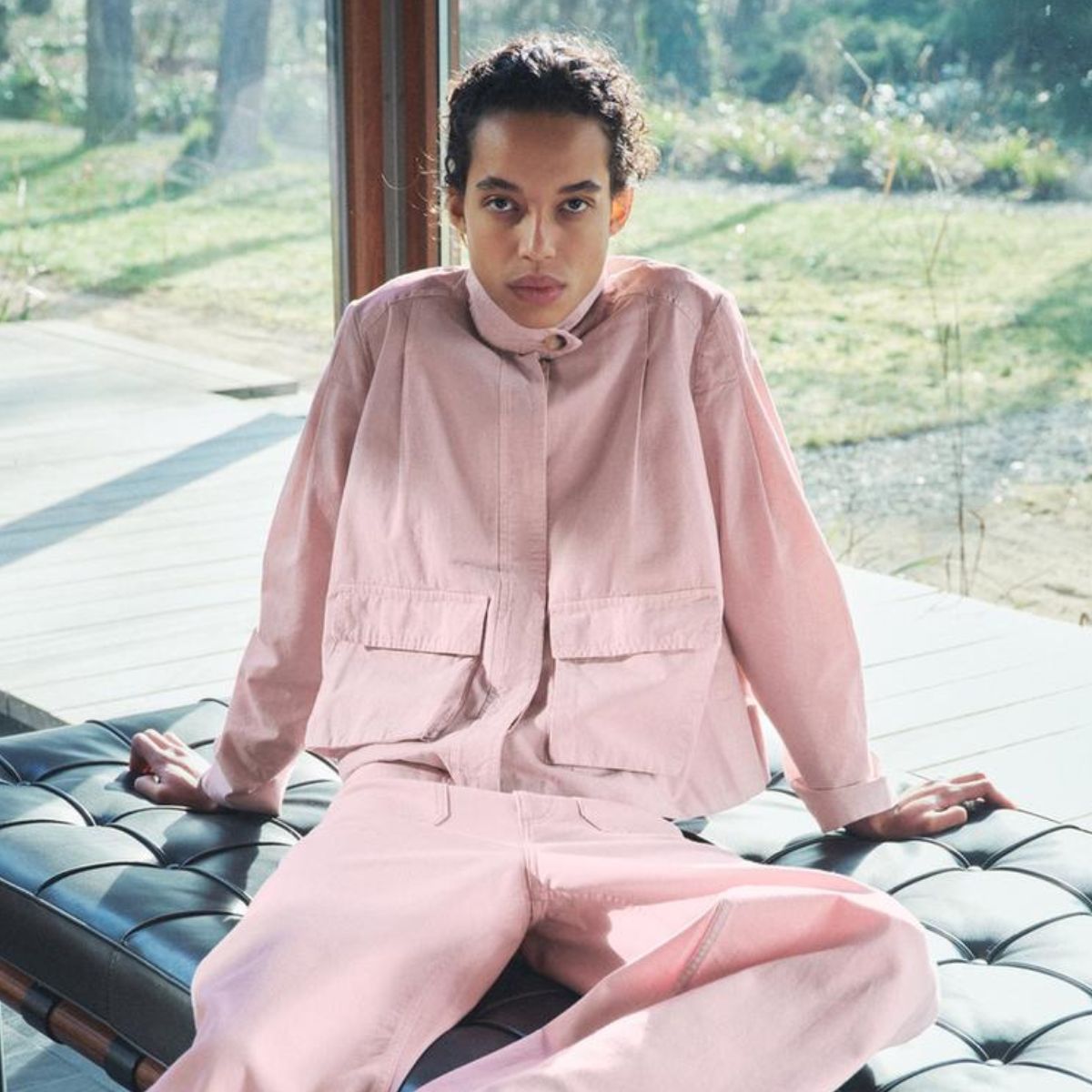 Zara Is Always One Step Ahead of the High Street—7 Major Spring/Summer Trends It Has Already Perfected
Zara Is Always One Step Ahead of the High Street—7 Major Spring/Summer Trends It Has Already PerfectedFresh and new.
By Sophie Robyn Watson
-
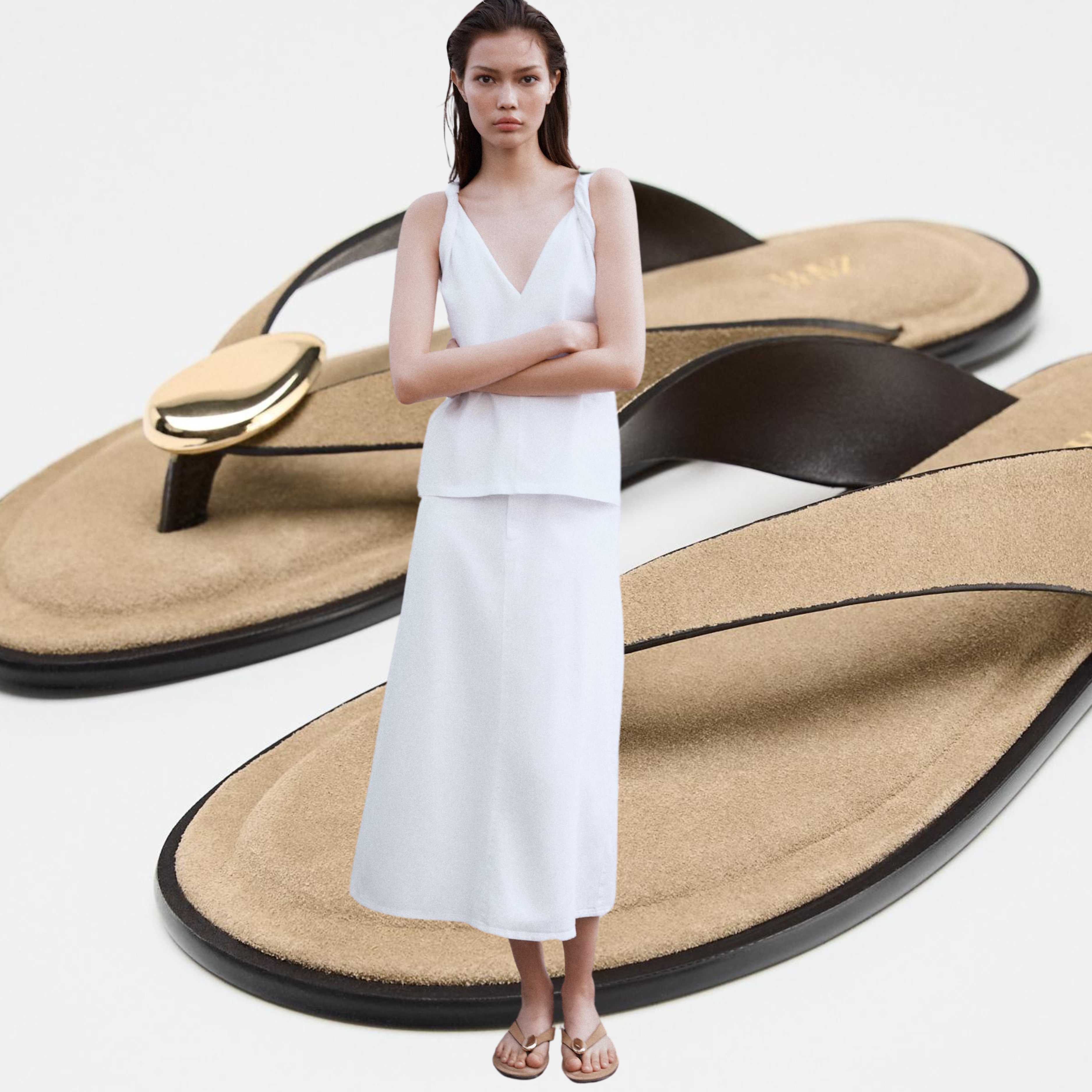 Sandal Weather Is Coming—You Bet I'm Buying This Designer-Looking Zara Pair
Sandal Weather Is Coming—You Bet I'm Buying This Designer-Looking Zara PairI'm sure they'll sell out before summer.
By Emily Dawes
-
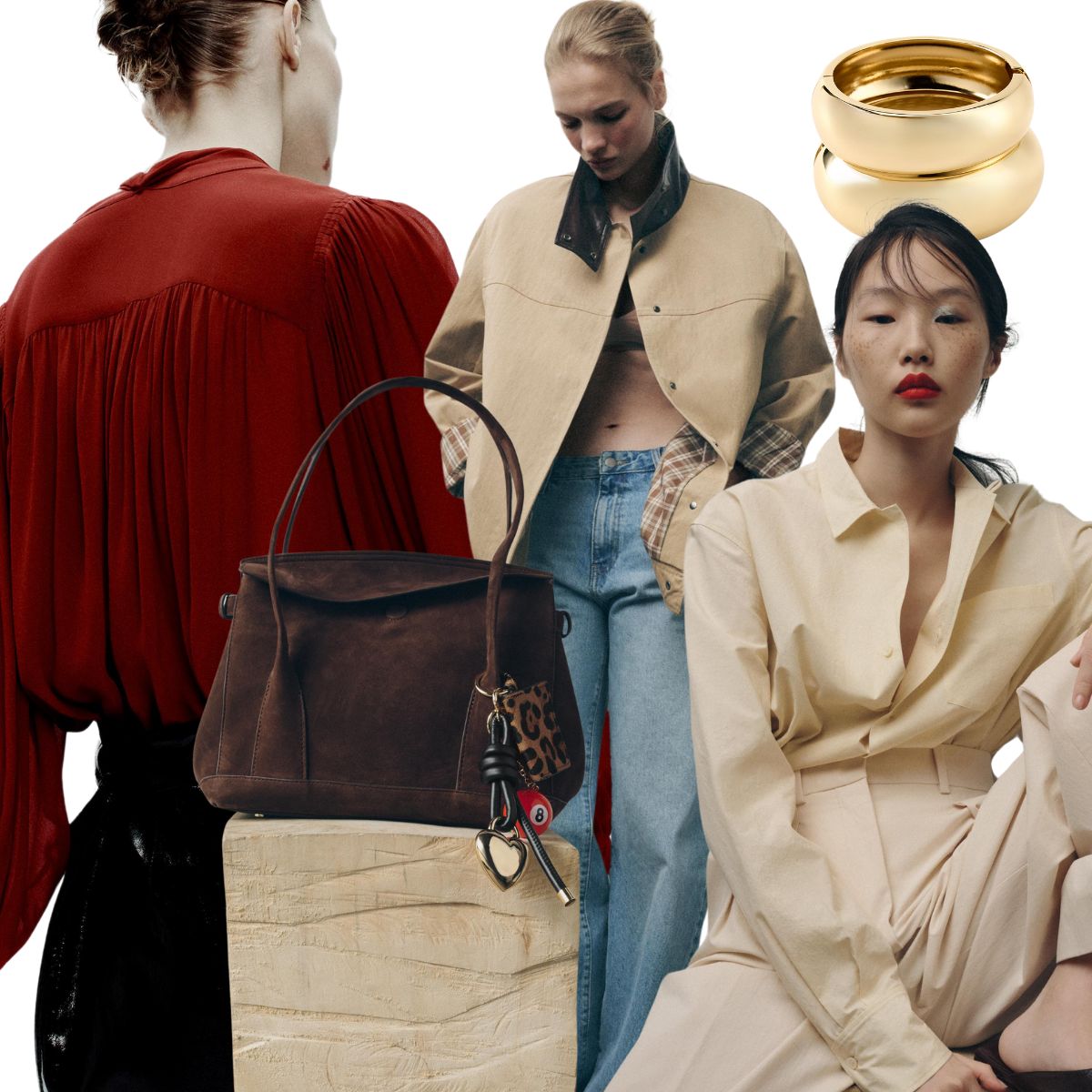 It's Already Spring at Zara—9 New-In Pieces That Will Be Impossible to Find In March
It's Already Spring at Zara—9 New-In Pieces That Will Be Impossible to Find In MarchThe chicest collection to date.
By Florrie Alexander
-
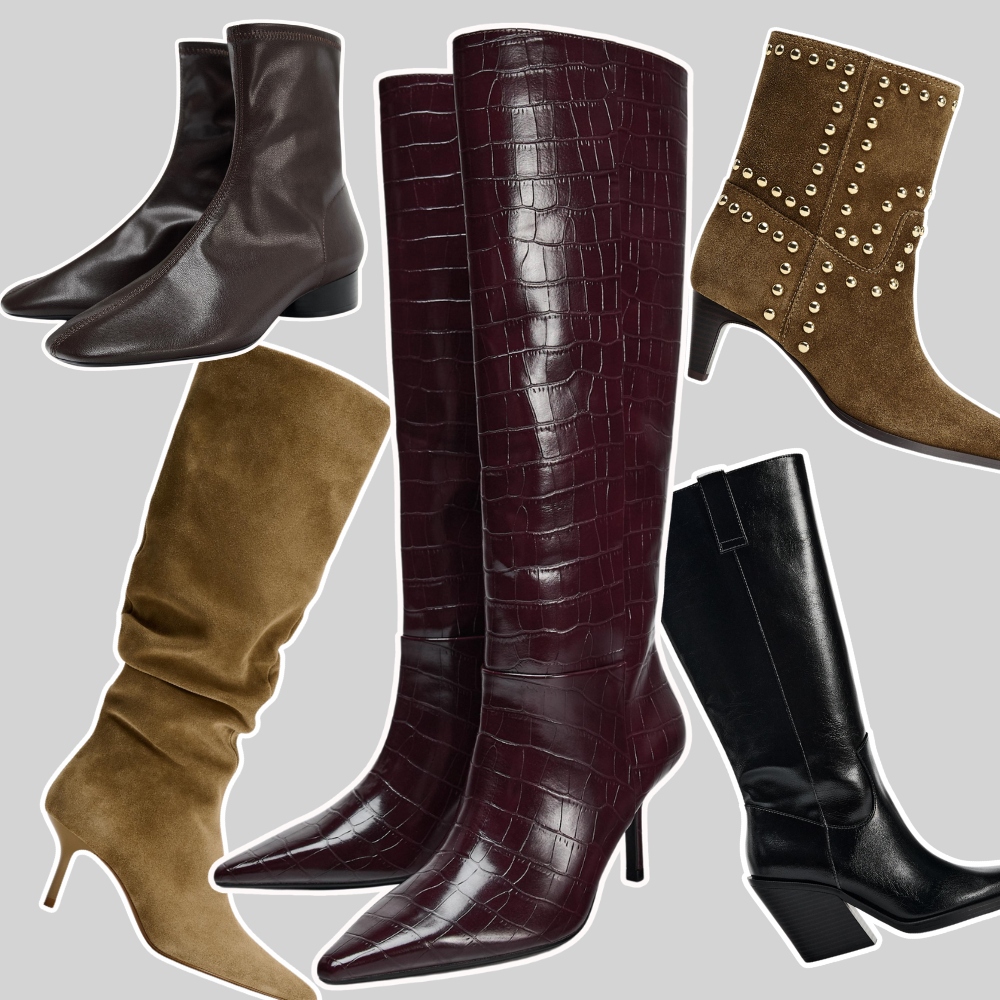 Nothing Says "I've Got Great Taste" Quite Like Zara's Latest Drop of Designer-Looking Boots
Nothing Says "I've Got Great Taste" Quite Like Zara's Latest Drop of Designer-Looking BootsPut your best foot forward.
By Remy Farrell
